















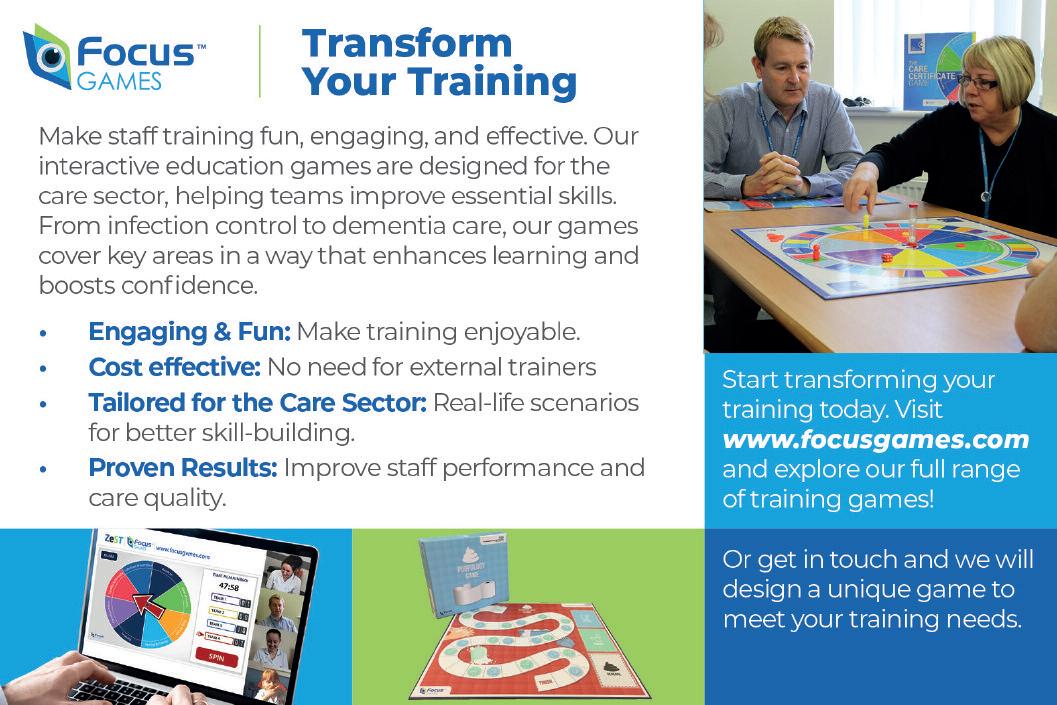


Editor Peter Adams
In light of Care Minister Steven Kinnock’s recent announcement of a potential Fair Pay Agreement it is clear that this policy shift while welcome is long overdue
The care sector has been struggling with an acute crisis in both recruitment and retention driven in large part by low wages and difficult working conditions
A fair pay agreement as outlined promises to address some of the systemic inequities that care workers have faced for years
However, the timeline for implementation not potentially until 2025 feels like another example of kicking the can down the road when urgent action is required
At the heart of this crisis is the unsustainable business model that has led to high staff turnover burnout and vacancies across the sector
Residential and nursing care settings are finding it increasingly difficult to recruit and retain staff Offering fair pay is crucial if we are to keep workers in the sector and attract new ones but equally important is ensuring the funding is there to sustain these wages long-term
While discussing the fair pay agreement at their recent conference trade union
UNISON has again called for the establishment of a National Care Service similar to the NHS
This idea has been on the table for years but we seem no closer to seeing it realised
Proponents argue that a nationalised system would ensure consistent, high-quality care across the country, provide fair wages, and remove profit-driven disparities
The care sector is highly fragmented, with a mix of public, private, and charitable providers, which has led to varying standards and financial instability
Nationalisation could in theory standardise pay and conditions across the board helping to tackle the workforce challenges the sector faces
However critics highlight the potential logistical and financial burden of creating a National Care Service The cost of transitioning to such a model could critics say be astronomical especially when the NHS itself is under severe financial strain
There are also concerns over centralisation with fears that a one-size-fits-all approach might not account for regional and local variations in care needs
While a Fair Pay Agreement is a step in the right direction the sector cannot afford to wait any longer we should see a clear timeline for implementation equal-
ly the idea of a National Care Service will remain a matter of debate with strong arguments on both sides
What is clear is that radical reform is needed and needed now if we are to ensure a sustainable future for care in the UK
As always it s inspiring to read the many stories that are sent in to us at The Carer with everything from awards and long service recognition for carers to exciting trips and entertainment for residents as well as many fund-raising activities for deserving causes We only wish we could feature every single one!
So, a heartfelt thank you to all who have shared these uplifting stories with us Your dedication and passion are truly inspiring Please do keep them coming we can’t wait to see what other wonderful ideas you have in store as the year progresses!
I can always be contacted at editor@thecareruk com and encourage our readers to sign up for our bi-weekly digital newsletter at www thecareruk com and follow us on social media for all the latest news
At THE CARER, we are calling on our readers for help.
As you may have seen in our appeal for support, The CARER has always been delivered in print and online free of charge since 2004 including the sector's only weekly digital issue
We are committed to keeping you informed with the latest news, views, products, and services on the sector s most popular adult social care website www thecareruk com , which receives almost 4 000 visits and 26 000 page reads every day

However, with costs rising significantly, we recently put out an appeal for support
We extend our heartfelt thanks to readers who have responded and pledged their support with a £10 donation covering the next two years, and thank you also for your very kind words of support too!
Your contributions are invaluable, and if you haven't yet pledged, please do consider supporting us so we can continue delivering quality content
For details on how to contribute, please visit www thecareruk com/subscriptions/


As part of this the Care Minister recognised the ongoing workforce challenges’ faced by adult social care services, and said the government was committed to working with the sector to tackle these challenges together’
RECOGNIZED AND SUPPORTED
Care workers deserve to be recognised and supported for the important work they do ’ said Mr Kinnock
‘They are essential to those who draw on care and support helping them maintain their quality of life independence and connection to the things that matter to them ’
While hoping to improve domestic and international recruitment and retention Mr Kinnock reiterated the government’s manifesto pledge for a fair pay agreement for those working in the sector
‘Looking beyond this winter we will engage with the sector including workers and trade unions over establishing the first ever fair pay agreement for care professionals ’ he said
We will shortly be reaching out to sector partners about this and look forward to engaging with local government representatives and drawing on the wealth of expertise within local authorities to help shape these landmark reforms ’
Mr Kinnock also said he looked forward to working with the sector ‘as we embark upon an ambitious long-term programme of reform with a view to creating a National Care Service
Mr Kinnock added: Close partnership working and joint planning between adult social care the NHS and other community partners is vital to the successful delivery of these priorities CARE SYSTEMS “ESSENTIAL”
Alongside workforce other priorities for the winter included that it was ‘essential’ for local health and care systems to continue to support individuals providing care for their family and friends
In addition, he pointed to a letter from NHS England which focused on the need to prevent avoidable hospital admissions and support timely discharge over the winter period
Local authorities were also asked to ensure good business continuity plans are in place for a range of risks in the winter period which
could affect adult social care provision’ including preparations for the potential implications of severe winter weather
In closing Mr Kinnock said: ‘I would like to express my thanks for your work to drive improvement in local services and better meet the needs of people who draw on care and support particularly in the context of the financial challenges that I know local authorities continue to face I look forward to working with you in future ’
CHRONIC STAFFING PROBLEMS
The case for reforming pay in the adult social care sector in England is strong a recent report revealed Low pay for care workers contributes to chronic staffing problems and high levels of poverty among workers, and senior staff are insufficiently rewarded for the additional skills and responsibility that they hold
Calls to improve pay in social care have been growing for some time
The public are supportive too: our polling for this research found that some 77% of people believe that care workers are paid too little
Earlier this month the government was warned Care workers deserve to be recognised and supported a union conference that the recruitment crisis in social care won t be resolved until wages rise in the sector, and achieving this with the government’s promised fair pay agreement will be the first step towards a much-needed national care service in England GROWING DEMANDS
In UNISON’S standing up for care workers proposal they called for a credible workforce strategy and an end to the exploitation of migrant care staff and that long-awaited reform of social care can’t begin until the fair pay agreement becomes a reality
Social care employers in England already have 131 000 fewer staff than they need As long as pay rates in care stick around the minimumwage mark the sector won’t be able to recruit and retain the workers needed to meet the growing demands of an ageing population says UNISON
The development of a fair pay agreement will UNISON said additionally help to stop the illegal underpayment of wages especially among the migrant workers who are essentially stopping the sector from going under, says UNISON, the largest union for social care staff SECTOR CRISIS
general secretary Christina
care is in a shocking state after many years of neglect
The sector is in crisis with ever greater numbers of vulnerable people in need of care and record workforce vacancies
Care workers will only feel valued enough to stay when they are paid higher wages and treated better The crumbling care system is in desperate need of reform but real change can only begin when salaries reflect the skilled work staff do
“A national care service would mean fewer older people going into hospital because of a lack of support freeing up beds and allowing the NHS to cut waits and delays for patients It would also put a stop to the appalling treatment of employees from overseas
“At last there is a government committed to improving social care A fair pay agreement and a national care service will make a huge difference to care staff and the families of those who rely upon their support ” SYSTEM “DISJOINTED”
Sam Thornton a care worker said: Getting a fair pay agreement up and running is the most urgent and important thing for care workers like me That would provide a system for sorting out pay levels which have been such a huge problem for so long
“I want a national care service that’s top quality for the people who need it The only way to do that is to invest in a skilled workforce Care workers have been left at the bottom of the pile for far too long and that needs to change ”
Kathleen Moore whose husband receives care support said: “A national care service could stop people having to jump through hoops to get the right help
Navigating the system and finding care has been a very frustrating and isolating experience because no one really tells you what support is available
The current system is totally disjointed short-staffing means care assessments are delayed and some of the workers are treated shockingly by their employers It shouldn’t be down to luck that you land the right support It should be guaranteed ”


How can you tell if your care home is a great place to live and work? A healthy amount of scepticism regarding your service s level of greatness is vital for any quality lead or nominated individual Fortunately there are clear indicators of quality (or the lack of it) in care homes that enable managers and nominated individuals to judge the quality of the audits and reports they are given
In the second of a short series of articles on service quality, social care expert (and former CQC inspector) Zoë-Dawn Anderson of Croner-i (https://app croneri co uk) reflects on the distinguishing features of a failing care home
1 EVERYBODY “NOSE” THIS ONE!
The first indicator of the quality of any care home hits you as soon as you walk in the door Of course much of our work involves the smellier body fluids but there are well-established methods and routines for ensuring the hygiene and fragrance of both the home and the people within it
Some people are resistant to taking support with personal care and may be self-neglecting Part of the provider s responsibility to that person is doing everything practicable to support them to be an independent as possible with their own hygiene to encourage them take some help and in the last resort to have strategies for dealing with the consequences of their choices
It may take a while to work out with a self-neglecting person the best way to help them manage their hygiene, but it also takes a while for a home to smell neglected; there s a great difference between the smell of “someone just had an accident” and “this room hasn’t been properly cleaned in a while Even if working with every person to overcome continence challenges, there s no excuse for your care home or parts of it to smell like a neglected underground urinal Nose blindness to established smells is a real possibility; ensure you listen and respond to any reports of malodour from new staff and visitors
2 FALLS MANAGEMENT AND PREVENTION FAILURES
This recent BBC News report featuring a lady living in a care home who fell 32 times in 11 months makes for sad reading
A good home does not accept falls as “business as usual” and makes every effort to prevent them In a failing home when falls happen investigations into the causes are poor or non-existent and there is a lack of individualised response and referrals onward
It s not enough to track falls and ensure people are checked out by a suitable medical professional, and it’s not enough to put in a falls detector and be reactive You must see falls as an enemy to take proactive, preventative measures against
It doesn t matter what your dependency tool says if there are a large number of unsupervised falls in communal areas then you don t have enough staff!
3 NO INTEGRITY FOR SKIN
As with falls a poor care home takes a reactive rather than proactive approach to people’s skin integrity The NHS describes pressure ulcers as mainly avoidable harm and in the USA the worse grades of sore are considered to be “never events” in elder care A great care home will lean towards the American approach and ensure that every protective step is taken to ensure people’s skin remains intact
Unfortunately in bad homes it s clear staff have never had proper training in even simple precautions such as ensuring people’s bedding
and nightwear is smoothed out and not bunched up Other failing homes have failed to ensure the supply and maintenance of pressurerelieving equipment In homes where the issue is lack of staff rather than poor training or lack of equipment skin integrity is one of the indicators that people just aren’t getting their continence support and personal care as they should be
As well as making people suffer it s frustrating and depressing for the remaining staff, who won’t stick around if they aren’t able to meet this basic need 4 HIGH TURNOVER OF STAFF (AND MANAGERS!)
This is a fairly obvious trait of a failing care home Even slightly competent staff are in high demand in our industry so there s no reason for most staff to stick around when they realise the ship is sinking
It s a frustratingly circular trait in that the less staff there is then the more the quality of care declines and so staff that are recruited don t stay Why would they stay in a job where they can’t meet people’s needs properly or can only do so at the cost of their own wellbeing?
Churn of care staff must be addressed early on and not allowed to become an issue The worst closed cultures have emerged in services with a high turnover of staff, where the hardcore of permanent staff becomes entrenched in poor practice Sadly a lot of that poor practice had its origins in over-worked staff doing their best and slipping into careless practice which was not properly addressed by management thus leading to the situation festering to an abusive one
Where agency staff are used they must be proven to be in possession of the skills they need to look after people properly Unsuitable temporary staff will destroy a home and the morale of permanent staff
5 STRESSED/DISTRESSED
Following on from the last point boredom can be a major cause of stressed and distressed behaviours that might challenge staff along with frustration and fear and physical causes like pain and dehydration (and the resulting UTIs)
When stress and distress escalate into a person being violent or otherwise a threat to staff or others it often results in more attention from staff often exacerbating the problem People then find themselves being medicated into submission with anti-psychotics that dramatically reduce their wellbeing and the quality of the last months of their lives with no efforts made to improve their situation
Poor homes accept this as usual but this is another situation which can cause a failing home to go into a staffing doom spiral as the good, permanent staff leave in frustration Good homes recognise that all behaviour is communication and take the time to work out what’s causing what If someone in their care does end up medicated then the home continues to work with the person with the goal of reducing their need for medication
The Scottish Care Inspectorate has recently completed a very informative podcast on this topic, following a project working with HCOne The chain s home managers were finding it difficult to get the support they needed for their residents and approached the Inspectorate The resulting project was a success resulting in less use of psychotropic medicines and people no longer being stressed or distressed Many were able to come of their medicines completely
6 TRAINING NOT SEEN AS A PRIORITY
If ever I heard the words we just don t have the time for training when inspecting I knew I was at a service that needed to change In a failing service it s business as usual that induction is rushed and refresher training infrequent or non-existent
Agency staff too are neglected in these failing homes, thrown in at the deep end with minimal introduction to the home and the people in it All good care staff these days know that theirs is a difficult and responsible job and expect to be well-trained like the serious professionals they are so failure to train will also affect staff retention
It’s not enough to expect staff to pick up the details of the job by doing it There must be proper induction and training arrangements in place, with shadowing of appropriate duration, or the service is doomed and the people living in it are in danger
7 LACK OF DIGNITY AND PRIVACY
Failings in privacy and dignity can function as an early warning sign for a service where staffing levels skills and resources have begun to
slip, particularly where people aren t quick to verbally advocate for themselves It s easy for a busy flustered care worker to forget to knock or to leave doors and curtains open as they provide personal care or assist someone on the toilet
As care becomes more rushed so does grooming; in a failing home people have neglected dental care their hair is greasy and their nails are long One of the “quick tests” I used to do when being shown around a care home for the first time was to look at how the people s hair looked at the back; it’s obvious when people have just had the front of their hair quickly combed as part of a rushed personal care routine
It s vital for managers to pay attention to this as they go around their homes By spotting this particular indicator and responding to it a service can prevent the appearance of many of these other traits
In homes where staff are stretched, even when the basics are done reliably the enjoyable aspects of personal care such as having time to spend relaxing in a bubble bath can be neglected despite their therapeutic benefits This launches us nicely into the next point
8 LACK OF ENJOYMENT
A poor care home sees activities and entertainment as a bonus and fails to allocate specific resources and staff for lifestyle matters but an activities or lifestyle co-ordinator (leading a team in larger homes) should be considered as essential as care staff, and also kept separate
The best care home I ever inspected (and of course rated Outstanding in 4/5 domains) had a large team of lifestyle and hospitality staff This meant that care staff were free to actually care they were even able to sit at mealtimes sharing the mealtime with people and helping them as needed in a really lovely and natural way because there were dedicated staff to serve People were being entertained by entertainers doing things they found entertaining, rather than having yet another session of bingo or parachute flapping led by care workers who would really rather be catching up with their paperwork or helping someone with a proper bath
I know what you re thinking and yes this home was not cheap but not as expensive as you might think for the best dementia care in London! Obviously, not every service has the resources, but that should be the goal As a new home grows providers must ensure the “luxury” stuff like fun grows with it
The staff loved working there because they had the time and the resources to do their jobs properly You don t need to be a luxury care home to ensure that your staff find such enjoyment in their roles 9 CAN’T DEAL WITH CRITICISM (INCLUDING THIS ARTICLE)
Sometimes well-meaning providers and keen staff teams get it wrong or standards start to slip with no ill-intent and it’s easy to reflexively feel defensive when you feel as if your care is being criticised when you are a caring person Good leaders know that pride shouldn’t come before progress though and soon recover and work to improve where it needs to be done
Many failing providers literally can t deal with criticism: as well as being taking it personally and being offended they lack the records and documents required to properly respond to complaints and concerns and point the finger at others rather than being candid about their own failings For poor leaders candour is impossible; they often correctly identify their issues but put blame solely on external or other forces beyond their control and this is the root of most service failures
As a result a truly poor provider would never have got this far in this article! If you’re reading this you can be assured that even if your service has its struggles, we are here to help you If we can’t help you we will point you to the organisations that can, such as to Skills for Care to find out about the funding available for staff qualifications This






With a growing aging population and increasing life expectancy the UK care home industry is under immense pressure to provide adequate care for those in need More than 110 000 additional care home beds alone are required over the next 10 years to satisfy these demands effectively
In today s digitally connected world, care homes are, quite rightly increasingly their adoption of new technologies to enhance quality of care, streamline operations and improve communication between residents families and healthcare providers
However this increased reliance on digital technology now means care homes are progressively becoming prime targets for cyber-criminals Research has found that health and social care businesses (52%) are disproportionately targeted by cyber criminals when compared to the average UK business (49%)
As a result the importance of implementing robust cybersecurity measures in care homes cannot be overstated and is vital to ensuring the protection of sensitive data, maintaining trust, and safeguarding the wellbeing of residents
THE CYBERSECURITY RISKS FACING CARE HOMES
The healthcare industry has seen a sharp rise in cyberattacks with phishing ransomware attacks and data breaches being the most common
While hospitals and large healthcare providers have made significant strides in improving their cybersecurity defenses care homes are often more at risk due to budgets being stretched much thinner
This gap in preparedness makes care homes an appealing target for cybercriminals Moreover the integration of digital systems such as electronic health records (EHRs) telehealth services and smart devices creates multiple points of vulnerability
These systems if not adequately secured can be exploited by malicious actors to access sensitive information or disrupt critical services
WHY CYBERSECURITY IS A BUSINESS IMPERATIVE FOR CARE HOMES
It’s important to remember that cybersecurity is not just about protecting data - it’s about protecting people In a care home environment where the health and wellbeing of residents is vital any disruption caused by a cyberattack can have direct consequences on resident care
Cyber-attacks can disrupt the day-to-day operations of care homes Ransomware attacks for instance can lock caregivers out of critical systems, leading to a delay or denying access to essential medical records incorrect administration of medication and hindered communication between caregivers which can all negatively impact a resident’s health and well-being
Care homes must therefore ensure they have sufficient protocols in place to both mitigate cyber-attacks

By Anne -Marie Vine Lott, Director of Health, Vodafone
and should they fall victim, help them recover and resume operations as soon as possible
However the primary reason for bolstering cybersecurity is the protection of resident data Care homes collect and store a vast amount of sensitive information which if compromised could lead to identity theft financial fraud or even – in the worst cases – targeted attacks on residents
A cybersecurity breach can also erode trust leading to a loss of reputation that may be difficult to recover from In a competitive market, where families have multiple options for care, maintaining a strong reputation for data security can be a differentiator
There are also regulatory requirements to adhere to, such as those provided by the General Data Protection Regulation (GDPR) act in Europe and the Care Quality Commission (CQC) Failure to comply can result in severe penalties legal action and reputational damage HOW CAN CARE HOMES STRENGTHEN THEIR CYBERSECURITY AND PROTECT PATIENTS
Employee training and awareness can be vital in mitigating the chances of being hacked Human error is one of the leading causes of cybersecurity incidents Training staff on cybersecurity best practices such as recognising phishing emails and following proper protocols for data access and storage, is crucial Regularly updating this training ensures that staff maintain the confidence and vigilance to manage cyber-threats effectively
Care Homes should conduct regular risk assessments to understand the specific cybersecurity risks facing their business This is a crucial first step toward mitigating cyber-risks and protecting devices services and networks and the information stored on them Regular risk assessments can identify vulnerabilities in systems processes and practices allowing management to address them proactively
No system is entirely immune to attacks Having a clear, well-practiced incident response plan ensures that care homes can quickly and effectively respond to a breach minimising damage and restoring normal operations In addition carrying out regular security audits by third-party experts can help identify vulnerabilities before they are exploited Regular data backups are also essential allowing care homes to quickly restore operations in the event of a ransomware attack or other disruption
Care homes should also encrypt sensitive data which ensures that even if it is intercepted, it cannot be easily accessed
Finally, care homes must invest in up-to-date cybersecurity tools and technologies, such as firewalls, encryption and intrusion detection systems Additionally implementing multi-factor authentication and regularly updating software can significantly reduce the risk of a breach
In the modern care home environment cybersecurity is not just a technical concern but a fundamental aspect of resident care By protecting sensitive data and ensuring the continuity of critical services care homes can uphold their duty to provide a safe secure environment for their residents
As the digital landscape continues to evolve care homes must recognise that cybersecurity is a priority not a luxury Investing in the right tools, training, strategies and seeking industry expertise through platforms such as Vodafone s V-Hub website can help to safeguard the health and well-being of the vulnerable individuals who depend on them most


and
• They can be bought as seen or refurbished and sign-written to your own requirements
• Fully serviced, new mot & warranty • Engineers inspection supplied if required


Reforming the National Health Service into a social health insurance (SHI) system could boost UK health outcomes to European levels a study has revealed
The new Government recently pledged an NHS overhaul with Prime Minister Sir Keir Starmer stating that “this isn’t just going to be solved by more money it s solved by reform however the specific model has not yet been clarified
According to new research from the Institute of Economic Affairs the NHS should be replaced by a European-style social health insurance (SHI) system to boost the UK s lagging healthcare outcomes
This comes just a week after a report by Lord Darzi finds that the NHS is in critical condition and Prime Minister s claim that the health service must “reform or die”
British public opinion is shifting According to a YouGov poll Britons are now increasingly likely to say the NHS is worse than European healthcare systems with 29% saying it s worse (+18 since April 2021) and only 20% saying it as better (-22)
As revealed by report author Dr Kristian Niemietz the NHS performs poorly on almost all parameters In the last year before Covid the United Kingdom had the second-highest avoidable mortality rate in Western Europe after Greece (71 per 100 000) Whilst this is high among developed countries, it was still Britain’s lowest-ever recorded rate Avoidable mortality rates were at 84 per 100 000 in 2010 and 120 per 100,000 in 2001 when the records began
For all of the common types of cancer the UK s survival rates are among the lowest in Western Europe typically not far ahead of Slovenia and the Czech Republic
Even prior to the pandemic, the UK had significantly longer waiting times compared to countries like the Netherlands with waiting times for many procedures about twice as long in the UK
SHI systems are market based with private insurers and providers competing for customers However markets are regulated to ensure access to healthcare for those with pre-existing medical conditions and governments support those who cannot pay for insurance on a meanstested basis
As outlined in the report a transition to an SHI system could improve healthcare outcomes Introducing competitive pressures and expanding patient choice as is the case in many European countries could improve standards and save lives DR NIEMIETZ SUGGESTS THE FOLLOWING ROADMAP TO AN SHI SYS-
TEM:
1 Turn Integrated Care Boards (ICBs) into non-profit statutory health insurers
2 Replace healthcare funding through taxation with health insurance contributions
3 The National Institute for Health and Care Excellence (NICE) should define a statutory minimum package for health services that all health insurers have to cover
4 Set up a risk-structure compensation scheme
5 Introduce free choice of health insurer to create a health insurance market
6 Turn hospitals and other healthcare providers into freestanding independent companies
7 Remove the cap on the number of medical students and introduce a market-based approach to medical education
8 Phase out national pay scales and introduce a free medical labour market
A market-based SHI system would allow for greater experimentation with incentive schemes and would respond to people s preferences with minimal disruption The reforms suggested in the paper would not shut down one system and build another from scratch but would allow one type of system to gently morph into another
Dr Kristian Niemietz report author and IEA Editorial Director said:
“Until not even three years ago the NHS used to be Britain’s most revered sacred cow and criticising it was the ultimate social taboo Now three out of ten people say openly that some of the continental European health systems deliver better-quality healthcare than the NHS does I have rarely seen a social taboo lose its bite so quickly there has been a dramatic shift in what people feel they are allowed to say in public
“But we have now reached a stage where pointing out that the grass is greener on the other side is no longer good enough What I try to show in this paper is how we can grow some of that greener variety of grass here on domestic soil
Professor Karol Sikora ex-Director of the World Health Organisation Cancer programme and founding Dean of the University of Buckingham Medical School said: We all know the NHS is in the graveyard Even the Labour party are saying it’s broken and needs reform It s an easy target to criticise but there is nothing in the Darzi report about what reform will look like Here we have one approach

that maintains what Bevan created all those years ago – its universality – but combines it with a business-like efficient approach Has the current government got the skill to implement it or will it be cast aside by some sort of fudge? Labour just can t go on blaming the Tories for the mess Britain is in – we need some action to change policy Where better to start than the NHS and with this proposal ”
Professor Gwyn Bevan Emeritus Professor of Policy Analysis at the London School of Economics and Political Science said: “Lord Darzi was shocked by what he found in his investigation in the NHS and the state of the nation s health This paper by Kristian Niemietz offers the radical solution to that crisis of changing to a social health insurance system with choice between competing insurers Such a system was implemented over 20 years in the Netherlands with agreement across key stakeholders Even if that change were desirable would England s political system ever maintain a consistent direction for NHS reform for 20 years?”
Professor Wynand van de Ven Emeritus Professor of Health Insurance at the Erasmus School of Health Policy & Management (ESHPM), said: “This is a great report that proposes a promising way to improve the incentives for efficiency and the responsiveness to consumer preferences within the NHS Fifteen years ago Professor Gwyn Bevan (LSE) and I came up with similar ideas We outlined how a consumer choice of Integrated Care Board as proposed in this IEA-report could result in a convergence of the English NHS and the Dutch healthcare model that is based on regulated competition among purchasers of care and providers of care ”
Matthew Taylor chief executive of the NHS Confederation said: “Switching to a social health insurance or other alternative funding model for the NHS is a misguided argument that many independent think tanks have concluded will make no difference to health outcomes If anything it s a distraction when what really matters is the level of investment rather than the model of funding
Research carried out by Ipsos on behalf of the NHS Confederation also showed that there remains a high level of support for the founding principles of the NHS The vast majority (87%) agree that the NHS should provide a comprehensive service available to all (87%) and remain free at the point of delivery as well as being funded primarily via taxation (83%) Switching funding models would be a needless distraction from what really matters to patients ”



By Deryn Fisher – Dispute

The death of a resident can be challenging both for their bereaved family and for their carers Unfortunately it can also be the background for difficult conversations about outstanding fees and who is liable to pay them Care homes need to be aware of legislation and guidance around this issue to avoid breaching consumer law which provides important protections to care home residents and their representatives
The basis for charging will be the care home s contract with the resident and where relevant the local authority or other third party assisting with fees
However the terms of that contract are subject to the provisions of the Consumer Rights Act 2015 which provides that any unfair term in a consumer contract is unenforceable against that consumer
It is inherently unfair that a person be charged for a service from which they will not benefit for circumstances beyond their control, however, there will be valid reasons why this may sometimes occur When considering what amounts to unfair a court will look to guidance by regulators such as the Competition and Markets Authority (CMA) watchdog to form a decision
Courts may also bear in mind that at the time of choosing a home both residents and their next of kin may have been frail and vulnerable under significant stress and not familiar to the process It is therefore important to make the process as transparent as possible from the outset with the terms set out in a way that is easy to understand
Providers states:
The CMA’s Consumer Advice for Care Home
1 The provider can continue to charge fees for a short, fixed period after death, three days is recommended
2 If the room is reoccupied during this period, fees should stop being charged from the date of that reoccupation
3 A care home can continue to charge fees until possessions are cleared from the room but the contract must include a reasonable backstop period – ten days is suggested
4 Staff may clear a room and safely store the deceased s possessions until they can be collected but should inform their representatives first and given them a chance to empty it It is reasonable to charge a fee for this storage but the terms on which this is done should be set out in the contract and reflect costs that you have actually incurred
5 You may also wish to make provision for possessions which are not collected including disposal or sale after a stated time period providing adequate notice is given to the deceased s representatives If possessions are sold a reasonable price must be obtained and the proceeds money returned to their representative within a reasonable timeframe – a maximum of 30 days after
sale is recommended
6 If fees have been paid in advance these should be refunded and the sum repaid within 28 days
It is sensible to include these terms in your contract with residents, so things are clear and unambiguous from the outset
While it may feel awkward to discuss fees and room clearance with grieving relatives it is necessary to bring the details to their attention If done sensitively it will allow them to make informed decisions and avoid the risk of a later dispute If additional requests by a relative are agreed – for example to keep the room unoccupied for longer if they live abroad – then any agreement should be kept in writing WHO IS RESPONSIBLE FOR PAYING THE FEES OF A DECEASED RESIDENT?
Family members are not responsible for paying care home fees which will need to be taken from the resident s estate This will be via their executor or if there is no will by whoever is administering the Intestate Estate
The exception is where a family member has agreed to pay top up’ fees to meet a shortfall between what the resident can afford or the local authority will subsidise Where this happens the relative would have a contract with the care home and it would be this that is enforced
This agreement would typically be on the same terms as that with the resident and/or local authority and you are likely to be in breach of consumer law if it is more onerous
You should also not increase the level of funds payable after a resident s death to cover any shortfall in government funding REFUNDS
Many residents will have paid fees in advance which exceed the amount required These should be paid promptly (within 28 days) once the appropriate sums have been deducted and the amounts detailed on your final invoice
CONSEQUENCES
Failure to meet the statutory test of reasonableness may result in enforcement action by trading standards or the Care Quality Commission
Residents who are unhappy with the terms can challenge them in court and if they are found to be unfair, will not be liable to pay the contractual sums They could also complain to the Ombudsman who can consider and refer to the CMA guidance when considering its findings In summary then it is important to ensure that contracts with residents family members and the local authority are clear and reasonable with reference to the CMA guidance Furthermore they should deal with service users and their representatives openly and with sensitivity so that unexpected charges or removal of possessions does not make a difficult loss more challenging
It will come as a surprise to no one that care is approached differently, in different parts of the world









Cultural differences make an enormous difference In France there are dementia villages without boundaries to the surrounding town but through design the residents stay put and people from town come in to enjoy shared experiences with them

In Japan, where there are simply not enough younger people to look after the elderly they have devised clever design strategies which allow them to operate with lower staff ratios than we generally employ in the West The concept of an information hub related specifically to care retirement and dementia interiors led to the development of the ThirdAge Design podcast and website with listeners in 63 countries Why was this necessary?
UNLOCKING RESEARCH
The breadth of this topic is enormous, and operators, designers and architects are generally time-poor
The Universities of Sterling, Newcastle and Hertfordshire are wellrespected in conducting research but
a wider breadth of information available from other countries which we might adapt to suit UK needs
Generally this must be accessed via individual academic portals to which you must subscribe which can be both time consuming and expensive Simply put the research tends not go to the people who can implement the work
INTERNATIONAL INSIGHTS
Supported by Wissner-Bosserhoff The Third Age Design (TAD) provides an interactive international community hub for care retirement and dementia design with transcripts translated into 12 languages in addition to English The hub subscription is free by signing-up at www thirdage design where the podcast can also be accessed in addition to all usual podcast platforms Topics include: the impact of AI on care settings, elegant bariatric design, and ‘Design Rules and How to
An expert in dementia care is urging a significant shift in public and media perceptions of people living with dementia stressing that these people should continue to be seen as valuable members of our communities and advocating for increased efforts to build a more ‘dementia-friendly society
September marks World Alzheimer’s Month with this year s theme being Time to Act on Dementia, Time to Act on Alzheimer s The global campaign aims to transform attitudes towards dementia address stigma and discrimination and spotlight the positive actions taken by organisations and governments to foster a more inclusive society for those affected by dementia Hannah Miller, Head of Dementia at Orchard Care Homes emphasises that the time to act is now
Orchard Care Homes operates 23 care Homes across the North of England and the Midlands many of which have specialist Reconnect communities These pioneering communities adopt a person-centric approach to dementia care in a therapeutic environment, aiming to understand why people exhibit the behaviours they do and adapt support to reduce distress on an individual basis
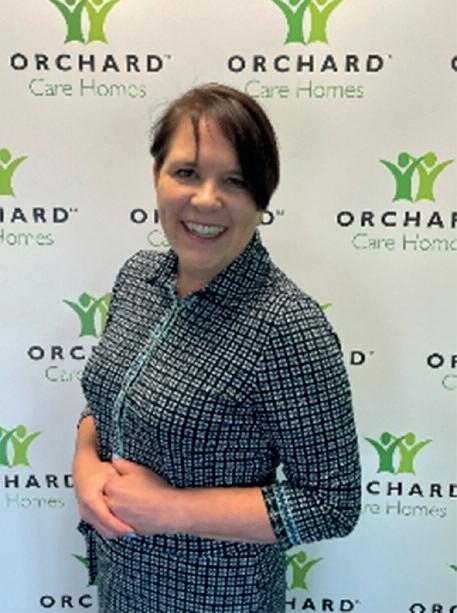
Orchard s Dementia Promise aims to remove the stigma surrounding dementia and encourage positive care approaches with the overarching goal of achieving true equity and respect for people living with dementia
According to Alzheimer’s Research UK, an estimated 1 in 14 people over 65 live with dementia in the UK today highlighting the need to ensure care and support for people living with dementia
equates to the care and support afforded to those who do not have dementia
Hannah emphasises that people who live with dementia must be viewed and treated as individuals deserving of inclusion in their families and communities
“We cannot let the situation where people are forgotten by society and viewed as lost or burdensome continue” she stated People living with dementia still have so much to contribute to society and it s our collective responsibility to ensure they can ”
With over a decade of experience in the care sector Hannah has spearheaded the launch and rollout of Orchard’s comprehensive dementia training programme Hannah’s bespoke, evidencebased course content is designed to completely reframe how colleagues think about and care for people living with dementia The training is tailored to both clinical and non-clinical roles across the business
Hannah believes the media has a crucial role in reshaping perceptions of dementia “The media often perpetuates fear surrounding the condition which fuels negative societal views and stigma,” she explained “We must communicate with hope and positivity to shift this narrative
She also urges government officials and policymakers to listen to the experiences of those they aim to help
It s vital that decision-makers consider the perspectives of the individuals affected by their policies We should not presume we know what s best for others they know their needs best

PLEASE MENTION THE CARER WHEN RESPONDING TO ADVERTISING

Prevent ever yday wear and tear with Yeoman Shield’s extensive range of easy-clean, wall and door protection
Our attractive, maintenance free, hygienic products protect healthcare environments from costly impact damage, making repainting and repair a thing of the past
Blending with decors, and available in primar y dementia-friendly colours, our designs can include signage, to promote the well-being of patients and aid wayfinding
But we don’t stop at walls Our Fire Door Ser vices are specially designed to offer an extra layer of safety in care settings From regular inspections and repairs to complete replacements, Yeoman Shield’s fire door ser vices help you meet all relevant safety regulations, giving you peace of mind
By

Being a care home manager is a dynamic and demanding role where no two days are the same
However there are core tasks and routines that form the foundation of my day DAILY ROUTINE
There are two parts of my role: one part is very operational to ensure that everything runs smoothly and the other part –which for me is most rewarding –is ensuring that our care home is a comfortable and homely space for our residents to enjoy
The operational side of my role begins early with a handover from the night shift This is crucial as it provides insights into how the residents have been overnight and highlights any issues that may need addressing After this I make it a priority to walk around the home visiting every suite and checking all areas inside and out including the kitchen and communal spaces to ensure that everything is in order
Reviewing the rota of our fantastic team of staff is another important part of the morning; I ensure that each area has a well-balanced mix of staff with the necessary skills This helps maintain our trusted and quality standard of care throughout the day
I hold regular meetings with the heads of departments to review compliance checks and follow up on any necessary actions Additionally I sample the meals daily to ensure that the residents’ dining experience is enjoyable with the opportunity for social interaction and nutritious food
Other key tasks throughout the week include occupancy meetings, where we review the home s capacity and admissions as well as meetings with managers from other homes and our regional manager These discussions ensure that we’re sharing best practices and maintaining the high standard of care that Sanctuary Care is known for
I also spend time meeting external healthcare professionals such as GPs, mental health teams, physiotherapists and occupational therapists Collaborating with these experts allows us to provide tailored support for each resident complementing the care we offer
A key part of my role is to ensure that our care home offers comfort and a true sense of belonging for each person in our care I take pleasure in getting to know each resident well and helping them to pursue lifelong hobbies and pastimes, through engaging in experiences they’ve always enjoyed Fostering a sense of belonging is also an important part of the role – I want both residents and staff to feel like they belong in the home, building new relationships and enjoying time socialising together
MOST REWARDING ASPECTS
The most rewarding part of my role is knowing that we truly provide the best possible care for our residents with dignity and respect at the forefront of everything we do I love the challenge of thinking creatively to create enriching experiences for residents, ensuring life doesn’t stop when they come to live with us Additionally helping my staff develop their careers and reach their full potential is incredibly rewarding Many of our team members have been with us for over a decade providing invaluable continuity of care Others have gone on to pursue careers as physiotherapists occupational therapists nurses and even doctors which is a testament to the supportive environment we cultivate
I ve been at Watlington & District Residential and Nursing Home since 2004 I initially started as the Admin before the home even opened, and over time I progressed into the role of Home Manager, a position I’ve held for over 15 years My background is with the NHS, where I worked in administration and finance and then recruitment which all provided a solid foundation for the organisational and leadership skills I use every day
SKILLS AND TRAITS NEEDED

A career in care takes empathy and a real desire to help people In my role as a Care Home Manager I need strong leadership resilience and excellent communication skills It s important to strike the right balance between being approachable and maintaining authority, as this fosters a respectful and open team environment
My Deputy Manager Julie Ann recently reflected on her experience working alongside me noting that as a home, we have a collaborative decision-making style, the team are involved in key discussions, and we’re committed to maintaining our trusted quality care These skills are essential for creating a supportive and cohesive work environment which is crucial for delivering the care that we’re known for across the industry
WHAT I LOVE ABOUT MY ROLE
I love walking through the doors each morning Our home has strong ties to the local community, and it’s not uncommon for us to care for people we ve known for years such as a former headteacher trustees or other long-standing members of the community It s a privilege to care for them and to maintain their connection to the community through experiences such as visits from local choirs churches schoolchildren or therapy animals
ADDING VALUE TO RESIDENTS' LIVES
Empowering our residents to take an active role in how their home is run is hugely important to us One resident who has a passion for quizzes now runs a weekly quiz for his fellow residents It s wonderful to see how sharing his interests has enriched the lives of others
We also ensure that residents feel secure maintain continuity in their daily routines and remain connected to their personal histories Our home has beautiful gardens where residents can enjoy the outdoors from gardening to family barbecues, providing opportunities for multigenerational experiences that involve their loved ones
HOW DO I ENRICH THE LIVES OF OUR RESIDENTS?
I strive to ensure that each resident feels valued and heard in their daily lives By creating opportunities for meaningful person-centred experiences we help residents achieve their goals and continue to make choices about their lifestyle where they can I truly find it a privilege to care for people who have had long lives, rich with experiences, and it s a pleasure for myself and my staff to be able to help them continue their story
OUTSTANDING ACHIEVEMENTS
One of the proudest moments in my career was when our home was rated Outstanding by the CQC It was an emotional moment because it was a well-deserved recognition of the hard work and dedication of the entire team Knowing that we ve made a real difference in the
worthwhile

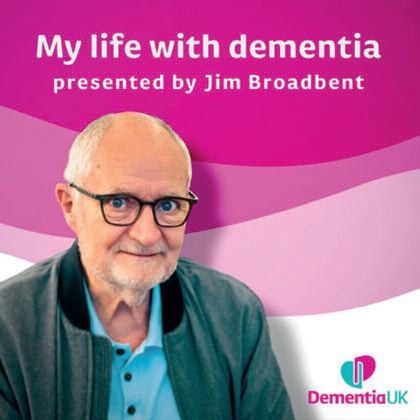
number of years with the charity s cause being close to his heart In 2002 he won an Academy Award and a Golden Globe Award for his portrayal of John Bayley in the film Iris which depicted the relationship between John and novelist Iris Murdoch throughout their youth and then into older age, as Iris lived with Alzheimer s disease
Celebrity ambassador Jim Broadbent said: It is a privilege to present Dementia
UK s new podcast and I am delighted to be a part of it Not only does the series allow audiences to get a glimpse into the lives of the courageous people affected by dementia but it shows just how wonderful the charity’s Admiral Nurses are in delivering vital support



Through their stories and with practical advice from the charity’s dementia specialist Admiral Nurses listeners will gain a deeper understanding of the condition from multiple perspectives – as well as invaluable insights empathy and hope
Andy Moxon is one of the storytellers who features in the podcast He was diagnosed with young onset dementia in March 2023 at just 52 years old:
“I hope people who have a diagnosis and listen to my story find some strength in themselves to try and continue to do things that they love to do
Whether that’s knocking golf balls down the driving range or going to the pub to watch football just continue living life as best they can ”
Jim Broadbent has supported Dementia UK for a
Dr Hilda Hayo, Chief Admiral Nurse and CEO at Dementia UK said: We are so excited to be launching our first ever podcast series, amplifying the voices of those who have been affected by dementia We know that families are often left to cope with a diagnosis alone isolated and without the support they need but we hope the series with allow people to find connection through shared experience ”
Subscribe to My life with dementia on Spotify Apple Podcasts, or wherever you get your podcasts to listen to new episodes as soon as they come out
You can find out more about the podcast on the Dementia UK website: dementiauk org/dementiapodcast/
If you need advice or support on living with dementia contact Dementia UK s Admiral Nurse Dementia Helpline on 0800 888 6678 or email helpline@dementiauk org







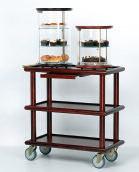




When it comes to prediction and prevention of falls it’s undoubtedly a case of the more information that we can leverage the better It’s great news then that the University of Strathclyde and Glasgow City Health and Social Care Partnership (HSCP) have jointly undertaken a research project with the aim of identifying how improved data analysis could help to achieve the more comprehensive picture which clinicians seek Also involved are telecare providers Tunstall and the Digital Health and Care Innovation Centre (DHI) so it represents an exciting, holistic initiative, analysing the chain that leads from the telecare tech itself and how its outputs are monitored right to the end user experience
With approximately 35 per cent of the population over 65 identified as mildly frail 15 per cent moderately frail and five per cent severely frail we must urgently accelerate dedicated frailty-targeting innovation
Injuries caused by falls are thought to be a leading cause of hospital admission and death for those aged over 75 with more than four thousand annual hospital admissions in Glasgow – but with the right data-driven support many of those can be avoided, also facilitating greater ability to bounce back from illness than would have otherwise been possible
There are great opportunities alongside the challenges – not only to make lives better and reduce fear of falling that can be accompanied by loss of confidence and isolation but also to realise time and cost savings that can then be redeployed back into the NHS amid an increasingly ageing population
The new partnership’s research champions the use of better more proactivity-led data analytics within telecare equipment – alarm systems designed to keep those considered to be frail safer at home – for timely and early interventions which help to prevent and reduce the longer-term impact of falls
The analysis further notes how Artificial Intelligence (AI) could play a significant role in building more personalised, predictive, and proactive models for allocating health resources with enhanced efficiency and
effectiveness both at the right time and in the right place
The partnership placed a focus on their key investigative challenge – how to best leverage the vast data collected across the health and social care system to identify or predict people most at risk from falls and potentially debilitating injuries, and what services could work best for them to offset such scenarios
Data accessed from more than 28 000 Glasgow residents who use the telecare system was analysed by researchers for potential gaps in information The research also looked at how data might be better captured for analytics purposes and usage in future research and innovation projects as well as further predicting service users specific needs for better outcomes
The partnership’s research findings encourage a “less risk averse approach to data sharing across organisations” in tandem with system integration and automation in order to produce the most comprehensive efficient picture possible while reducing admin work for staff
Marilyn Lennon Professor of Digital Health and Care at the University of Strathclyde noted that it is not straightforward to share data but when we do we get great results We have the opportunity to share innovative machine learning for the greater good”
Formal NHS Scotland partner InnoScot Health welcomes this positive research and hopes that it can lead to further workforce-led innovation in a vital area aided by important information campaigns targeting more active lives for Scotland s ageing population such as one launched earlier this year by NHS Highland
InnoScot Health aims to tap into staff expertise and together help to develop new innovations that can help people live better in later life or cope with long-term health conditions
The organisation’s frailty innovation call supports NHS Scotland innovators from any NHS health board and any role or medical discipline and encourages them to get in touch with their ideas
We believe that our call to health and social care professionals is timely with innovation representing true empowerment for those who need it most
Fundamentally it is all about improving quality of life while supporting NHS Scotland adapt to changing demographics and demand for services
InnoScot Health offers the opportunity for health and social care professionals to submit those ideas for new and innovative approaches to frailty – whether that be concept technology device or service
A package of support for health and social care staff is available to those looking to submit their ideas and reimagine the frailty system of care
The frailty call is open to anyone working across NHS Scotland and harnesses the wide spectrum of our talented health and social care professionals
moment of connection and reflection
Following the prayers the festivities moved to the garden where the much-anticipated Matki Fod event took place Residents, staff, and local community members eagerly watched as young participants attempted to break the traditional pot symbolizing the mischievous and playful spirit of Lord Krishna

The event was filled with laughter and excitement as the crowd cheered for each enthusiastic attempt
After the Matki Fod the energy remained high as everyone enjoyed a lively folk-dance performance with both staff and residents joining in to celebrate the occasion with joyous music and movement Home Manager Payal Chhabra expressed her delight with the day s events: At Karuna Manor we always strive to bring joy and cultural celebrations to our residents It s wonderful to see everyone coming together to celebrate such an important festival creating memories and strengthening our sense of community Hotel Services Manager Sagar Joshi added, “Our aim is to make each resident feel at home and festivals like Janmashtami are a perfect way to do that Today s event was a beautiful example of how we can celebrate culture while bringing happiness to everyone involved ” Residents and their family members also shared their thoughts on the day’s festivities Mrs Patel, a resident at Karuna Manor smiled and said I loved the prayers and the dances It reminded me of my younger days when we would celebrate with so much joy ” Her daughter, who joined the celebrations, added It s heartwarming to see my mother so happy and engaged in such cultural celebrations


By Jo Henney, CEO at Nugent (https://wearenugent
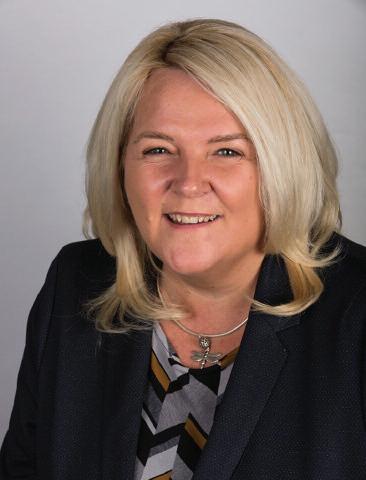
The assessment of adult social care by the Care Quality Commission (CQC) through single-word ratings is in need of change and I support the growing calls to scrap this as
Ofsted has done with the education sector
Recent criticisms of the current rating system have highlighted significant concerns and a need for a more nuanced and transparent measurement to accurately reflect the quality of care and minimise risk to reputation
While it is essential to communicate the outcomes from inspections publicly for the benefit of the public, the short-shrift definitions given to care homes through the CQC’s current single-word rating system undermine the complexities of the work being done day in day out by care provisions and their already undervalued staff members
This can develop mistrust between care providers and families and may also discourage and demoralise staff further contributing to the pressures on employee retention
A spokesperson for the Department of Health and Social Care stated that it is reviewing the CQC’s methods and has requested improvements in the communication of ratings however it is not currently considering a change to the single-word rating system
While I remain hopeful that the CQC will honour this review and positive reform will
emerge it is disheartening to hear that a new rating system is being dismissed
Throughout my career in the care industry and as CEO of Nugent, I have experienced underfunding in social care leading to growing distrust between care leaders and government bodies
Cllr David Fothergill, Chairman of the LGA’s Community Wellbeing Board, has asserted that local governments support transparency and accountability in assessments and recognise their role in driving service improvements; he reinforces that single-word judgments cannot adequately reflect the complexity of adult social care or the efforts councils make to meet their legal obligations
I d like to see a new rating system that understands the challenges faced by care home providers and staff and focuses on particular aspects of care, offering detailed insights into areas of improvement while also recognising positive outcomes to give a more balanced representation
A new, supportive system should provide clear, constructive guidelines for care providers and put the tools in the hands of families to make informed decisions about the future of care for their loved ones
David Satterthwaite – Researcher, Nobel Prize Laureate and Senior Associate at the International Institute for Environment and Development (IIED) – has been awarded the UN-Habitat’s 2024 Scroll of Honour Residing at Wimbledon Common Care Home part of Avery Healthcare in London Satterthwaite was recognised for his outstanding contributions to sustainable urbanisation and improving urban life
UN-Habitat honoured the 73-year-old with the international award for his 50-year contribution to urban development, particularly his advocacy for improved housing and living conditions for marginalised urban residents
His efforts have significantly contributed to tackling urban poverty environmental health and climate risks in the global South substantially impacting urban development and demonstrating the power of individual contributions Satterthwaite was an employee of IIED for 47 years from 1974 to 2021

David was also a visiting professor at University College London, and has co-authored two books –Urban Poverty in the Global South (2012) and Reducing Urban Poverty in the Global South (2013) He was also a co-ordinating lead author of the chapter on urban adaptation in the Fifth Assessment of
the Intergovernmental Panel on Climate Change
Since its inception in 1989 the Scroll of Honour has celebrated exceptional efforts in improving shelter provision post-conflict reconstruction and urban living conditions
In a touching and generous gesture Satterthwaite has dedicated his award to the devoted care team at Wimbledon Common Care Home, where he has been a resident since 2022
“This award is a testament not just to my work but to the incredible support I ve received throughout my career Satterthwaite remarked He continued “The care team here at Wimbledon Common Care Home have played a crucial role in my well-being and I’m thrilled to share this honour with them
Hannah Ilsley, General Manager of Wimbledon Common Care Home, expressed her pride and appreciation
She said, “We are delighted by David’s achievement and deeply moved by his decision to share this honour with our team His dedication and vision continue to inspire us all he is a truly remarkable individual ”
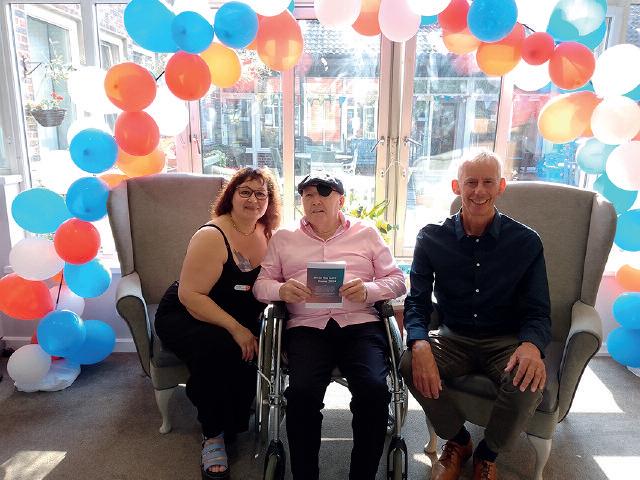
The Royal College of Nursing is calling for the Cabinet Secretary for Health and Social Care to directly address the patient safety and dignity concerns associated with corridor care through the Winter Preparedness Plan being presented to Parliament this afternoon (24 September)
The call comes as RCN Scotland Director Colin Poolman gives evidence to the Parliament’s health social care and sport committee on the National Care Service (Scotland) Bill highlighting that the focus on the National Care Service will do nothing to address the current crisis in capacity or tackle workforce shortages and recruitment and retention challenges within community health and social care services
Throughout the summer Scotland’s acute hospitals have continued to experience overcrowding with the number of people waiting in excess of four hours in A&E during July at record levels and almost 2,000 people ready to leave hospital but waiting on packages of care and support in the community

Many of NHS Scotland’s health boards have implemented continuous flow models in an attempt to reduce the length of time patients have to wait within emergency departments RCN Scotland has raised concerns about the risks associated with these models In particular the lack of recording and reporting of instances when patients are cared for in inappropriate areas such as corridors and treatment rooms or when additional beds are added to wards without the necessary staffing or equipment to ensure patient safety and dignity
The unacceptable pressures on hospital services are a direct result of the lack of capacity within community health and social care services The Winter Preparedness Plan 2024-25 must acknowledge and address this
Over the summer RCN Scotland asked members to share their experiences of care in appropriate places via the Sensemaker tool Following is a sample of some of the comments made by members
Staff nurse: Caring for an end of life patient (who subsequently passed away) in a six bedded busy medical ward We just couldn t facilitate a side room due to infection control issues Meanwhile management are still calling the ward to try and arrange transfers of additional patients to the ward – seventh patient in six
bedded room No curtains no oxygen points no sockets no space Two examples of no privacy nor dignity in care ”
Senior charge nurse: Caring for patients in corridors Assessing people in relatives’ room and makeshift corners with screens in place Knowing we can t check patients skin or care for continence needs because we don t have anywhere to do it – the endless daily cycle of this Our reality every single day – no exception The indignity and humiliation that our frail elderly population are subjected to every single day We don t meet patients’ basic needs ”
Ahead of today s statement Colin
Staff at Leeming Bar Grange Care Home in Leeming Bar recently held a community workshop to share key tips and stories on how to avoid being scammed and an insight into the Police role
Community Support Officers Heather Lees and Charlotte Jones from North Yorkshire Police joined us for a community coffee afternoon!
Heather and Charlotte very kindly joined us to introduce themselves and explain more about their vital role in the community answering all our questions and joining in the joviality that always ensues in the home!
A huge thank you to Heather and Charlotte for taking time out of their busy day to spend time with us! The residents also got there first ride in a police van General Manager of the home Katheryn Billett said: We wanted to use the workshop to make sure our residents as well as friends from within the community were better informed on scamming tricks and to know that support is always here at Leeming Bar Grange as well as with the local police



Sheltered housing provides support security and social opportunities for older and disabled people while also giving them and their family members reassurance that help is at hand if they need it
Around 527 000 homes are designated as sheltered housing in the UK
The All-Party Parliamentary Group (APPG) on Housing and Care for Older People, chaired by Lord Best launched an inquiry in June 2023 to explore the problems and opportunities arising from the age condition and suitability of existing sheltered housing
Sheltered housing is the single largest purpose-built specialist form of housing available for older people in the UK
The findings of the inquiry mirrors what we see in the wider housing market – both the quantity and the quality of housing can be improved
While the overall quality of sheltered housing is hard to gauge the report highlights around 73% was built prior to 1990 before improved quality standards were introduced
As a result, the inquiry report states many sheltered housing schemes struggle with inaccessible design features such as narrow corridors steps and stairs with no lifts and inaccessible bathrooms and kitchens We also face a challenge with regards to the quantity of sheltered housing
The number of people aged 85 years and over was estimated to be 1 7 million in 2020 This is projected to almost double to 3 1 million by 2045 For seven consecutive years during the 1980s more than 15 000 sheltered properties were built each year For the past six years less than 5 000 properties a year have been built
Furthermore 2 000 sheltered properties are taken out of circulation every year through demolition or sale meaning supply will need to be increased significantly in future years
Some properties are beyond saving However in many cases, there is an opportunity to redesign rather than demolish and a chance to improve resident wellbeing in the redesign
There are also implications for the wider housing market If a sheltered home is taken up by a new resident then a house or flat also becomes available for others to move into
By John Glenton, Executive Director of Riverside
However for residents to want to move into sheltered homes the modern expectations of stylish décor private bathrooms and technological connectivity need to be met
Hugh Owen Director of Strategy at Riverside highlighted the scale of the refurbishment challenge to the inquiry
In 2016 Riverside conducted a comprehensive audit and found 33 sheltered housing schemes required significant intervention
Riverside aimed to deliver maximum impact on a limited budget
Where wider refurbishment work was not required improvements were focused on communal facilities to create attractive environments which meet contemporary safety standards
At costs under £1m per scheme this is substantially less than some of the remodelling examples presented to the APPG
Riverside has partially addressed the challenge with a £33m Retirement Living Improvement Programme which has benefited 39 schemes since 2018/19 However, there is still a lot for us to do
Riverside is also delivering a new-build extra care pipeline
As we know from those projects extra care facilities are best built near to services, both healthcare and recreational to the benefit of tenants and their staff
Future new build sheltered housing schemes should also follow along the same lines Access to amenities and an engaging environment not only helps longevity but helps the wider community by adding another customer base to surrounding businesses
Funding new sheltered housing at this time is a challenge which requires subsidy
The APPG calls for a 10% target for older people s housing to be part of a flexible approach by Homes England and the Greater London Authority for future capital investment, particularly from the 2026-2031 Affordable Homes Programme
The inquiry also rightly asks for The Department of Health and Social Care s £300m Housing Transformation Fund to be reinstated The 10-year strategy was announced in 2021 and then cut in 2023 to much outcry from the sector which called the move short-sighted
Shortsighted indeed as recent research by the Building Research Establishment on behalf of the Centre for Ageing Better showed poor quality housing was costing the NHS £1 5bn each year
We know sheltered housing can help to transform lives Supporting people to independent, healthier lives in a safer environment within a community setting that can reduce the risk of isolation and aloneness
Reinstating the Housing Transformation Fund would to transform more people s lives and make the nation better prepared for an ageing population


Centralised
ecosystem
Non-Intrusive Monitoring Technology: One of the significant advantages of EARZZ s technology is its non-intrusive nature Unlike cameras or audio relay-based alerting solutions, EARZZ uses AI-powered sound recognition technology which preserves residents privacy The solution does not record conversations or personal interactions ensuring dignity and privacy are maintained
“This partnership goes beyond fall prevention ” says Prad Thiruvenkatanathan CEO & Founder of EARZZ By offering a holistic detection and alerting solution we empower carers to deliver exceptional, person-centred care ”
Rishi Jawaheer Director of CAREVision adds This integration empowers care homes to be more proactive in preventing falls and delivering the highest quality of care
Earzz will be exhibiting at Care Show Birmingham at Stand F13 come speak to us to learn more about how we can help you enhance the quality of

In honour of National Inclusion Week Sanctuary Supported Living shares the inspiring story of Lauryn, a dedicated Support Assistant at Oleander House Lauryn s commitment to helping others has made a lasting impact at the service, which provides care and support for adults with a range of learning disabilities encouraging them to develop their skills and live as independently as possible
Lauryn applied for a job at Oleander House just over a year ago driven by her passion for making a difference in people s lives and her personal experiences of living with Down syndrome Although she had no prior experience in supported living she brought a wealth of knowledge from her education and earlier work in childcare
At a young age I always wanted to help others Lauryn shares “Studying Child Care and Health and Social Care at college inspired me to work in a field where I could make a positive impact especially for those with disabilities like mine
From the moment Lauryn joined the team at Oleander House her caring nature and enthusiasm to support adults with learning disabilities has been evident in every aspect of her work Her unique perspective enriches her approach to care and support enabling her to empathise and connect with customers and excel at encouraging them to develop their skills and live as independently as possible Her commitment to her role shines through in her interactions with both customers and colleagues I ve made genuine friends amongst my colleagues ” Lauryn says “We work really well together as a team and

the support we give each other makes the job even more enjoyable She adds: “The best part of my job is seeing customers smile and laugh; it’s incredibly rewarding to be part of their journey and to see their confidence grow ”
Lauryn believes that everyone s unique qualities contribute to a richer more inclusive workplace and she exemplifies how we can embrace individuality in meaningful ways She is not defined by any one aspect of her identity; rather her diverse experiences and qualities enrich the communi-
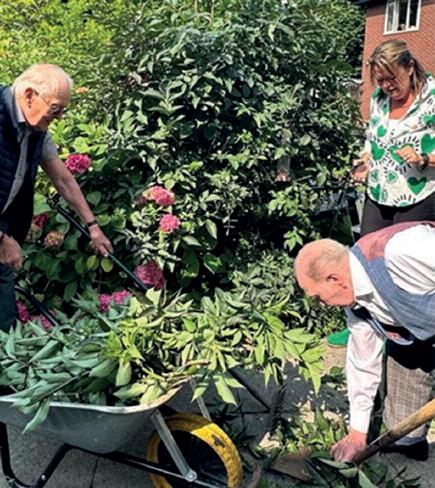
care home s garden project entries for the Gardens in Bloom competition and seeing residents and colleagues get creative in transforming their blossoming gardens Kirkwood Court were delighted when it was announced that they had won the regional award for HC-One’s Bonus Bloom garden which included the prize of a
vegetable patch, flower beds/boxes and wildflower gardens Other ideas included creating dementia and sensory gardens or supporting local wildlife by creating bug hotels to attract and shelter insects
The home worked tirelessly to create such a beautiful garden from potting plants creating a green house full of tasty herbs and creating a memorial area with a yellow
Five regional winners were announced across England, Scotland and Wales receiving a hamper of garden
A £300 voucher was also awarded to the overall winner from one of HC-One’s suppliers Real Trade Supplies



Meals on Wheels Week
returns 4th November to 8th
November 2024 The awardwinning national event organised by the National Association of Care Catering (NACC) raises awareness of and celebrates Meals on Wheels services across the country and the vital role they play in supporting older and vulnerable people living in our communities

It is an initiative that brings together Health and Social Care sector caterers service providers food suppliers volunteers carers older people and public to raise awareness about the importance of meals delivered in the community – whether via Meals on Wheels services day centres or lunch clubs for older people and those with vulnerabilities
Each day throughout the week there are activities planned to highlight some of the particular elements of Meals on Wheels
MONDAY 4TH NOVEMBER – MULTI-CULTURAL
MONDAY
The UK has a multi-cultural demographic for older and vulnerable people requiring the service MultiCultural Monday is about recognising the diversity of the meals on wheels service and how it connects and offers meals to cater for all
TUESDAY 5TH NOVEMBER – THANK YOU TUESDAY
Show your appreciation for everyone that contributes to Meals on Wheels services whether that s the team members making the meals volunteers drivers carers or those that work behind the scenes today is the day to show our gratitude
WEDNESDAY 6TH NOVEMBER – VIP ON WHEELS
There s no better way to convey the value of our services, than seeing it in action and the impact it has on service users VIP on Wheels is a fantastic opportunity to invite local MPs, VIPs and dignitaries to experience service delivery and celebrate your service and the immense value it adds to the lives of those receiving it
THURSDAY 7TH NOVEMBER – CONNECT THURSDAY
Not all vulnerable and older people have the luxury of leaving their homes due to a host of reasons
Meals on Wheels is more than just a meal and offers these individuals connection with people an opportunity for wellbeing checks and in some cases a smile and chat in person with another human Join us in sharing your examples on how you connect with your service users
FRIDAY 8TH NOVEMBER – FRIDAY FRIENDS
Highlight the importance of social eating and how it helps reduce loneliness and social isolation Friday
Friends will bring people in our communities together to share the joy of food and time This could be at a lunch club day centre or a care home could invite the local community in for afternoon tea And where this may not be possible why not simply invite a neighbour for lunch? This small gesture is sure to have an immense impact
The week is also an ideal opportunity to spotlight the social contribution of Meals on Wheels services
Loneliness and social isolation are prevalent on our communities and Meals on Wheels, together with lunch clubs and day centres, play a critical role in reducing this
Neel Radia, National Chair of the National Association of Care Catering and Lead for Meals on Wheels Week said Last year we released a report in partnership with Association for Public Service Excellence (APSE) that showed vital Meals on Wheels services on the brink of collapse with only 29% still in operation across the UK operated by Local Authorities and fewer than 18% in England
Anecdotally this situation has not improved
Since the NACC started this campaign over 30 years ago Meals on Wheels Week remains relevant
We are asking the public to support local meal services that helps address loneliness, social isolation, and safety in the community for older and vulnerable people ”
To find out more please visit:
thenacc co uk/events/meals-on-wheels-week-2024
#MealsonWheels2024
#MoreThanJustAMeal
#SaveMealsOnWheels


REM have been manufacturing furniture for the Hair & Beauty Sector for over 100 years and are now considered to be one of the largest manufacturers in both the UK & Europe
Understanding the growing requirement for Care & Residential Home Salons, REM’s Design Team have produced the Pendle Care Range for the Small, Compact Care Home Salon

The National Day of Arts in Care Homes is an annual event where care homes and arts partners can take part by organising an arts activity big or small involving any art-form
At Daneside Mews Care Home in Northwich Cheshire have been taking part in an arts and crafts session where residents

Merseyside, residents have been creating and decorating their own bird boxes
Residents decorated the bird boxes with a selection of bright and vibrant colour choices and patterns to attract new wildlife to the garden areas of the care home
Residents filled the bird boxes with straw sticks rocks feathers, and moss to create an attractive living
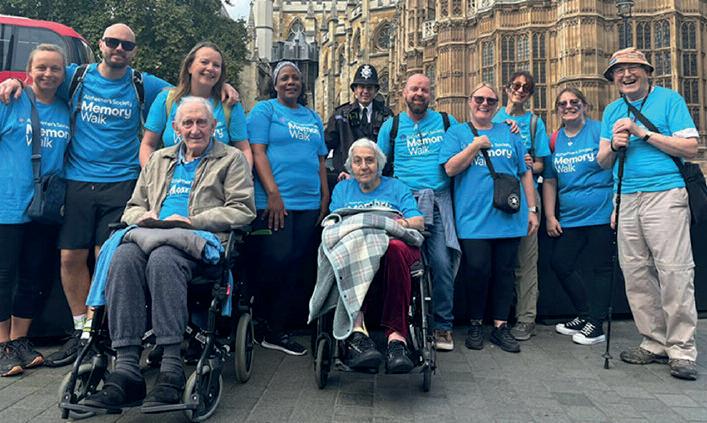
Triton Showers has been presented with a King’s Award for Enterprise recognising the brand s commitment to sustainable development and integrating sustainability into its long-term business strategy and Net Zero goals
The Nuneaton-based shower manufacturer was presented with the achievement by the Warwickshire Lord Lieutenant Tim Cox on Wednesday 4 September at its Shepperton Business Park head office
The King’s Award for Enterprise celebrates Triton’s ongoing efforts to reduce its carbon footprint and environmental impact Triton is one of only 29 select organisations to be recognised nationally for its contribution to sustainable development having received the news earlier this year
Lord Lieutenant Tim Cox praised Triton s achievement It has been an honour to meet with this year s winners of the King s Awards for Enterprise These Awards are a great boost to the local economy and show our ability to attract and sustain successful companies which in turn support our local communities I am delighted to present this award to a company that truly embodies the
for
As we look
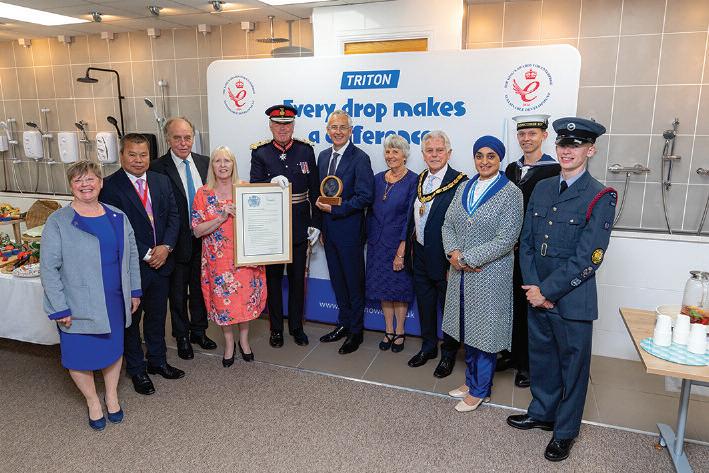
businesses as possible to consider applying These awards are the highest accolade available to UK businesses and offer unparalleled prestige, exposure and credibility to successful companies ” David Tutton Managing Director at Triton Showers said We are incredibly honoured to receive

Speaking on the Voices of Care Podcast from Newcross Healthcare – a leading podcast channel dedicated to the voice of the health and social care sector – Sarah Woolnough, CEO of The King’s Fund, has claimed that the NHS is not broken but that a fractured society is putting it under significant strain
Suhail Mirza non-executive director at Newcross Healthcare and the podcasts host asked Wes Streeting the secretary of state for health and social care, early on in the election, and to this day, has said he wanted his department to be an economic growth department but he and Sir Keir Starmer have described the NHS as ‘broken’ What s your view?”
Responding Sarah Woolnough claimed the NHS needed sustained and transformative change She said that the NHS model had not fundamentally changed since 1948 and whilst the NHS is doing an awful lot for a lot of people the reality is we have got a different population with different health needs ’
Sarah states: The NHS can deliver different types of care and treatments that we would not have dreamt of decades ago It is incredibly challenged we do have a crisis of sorts it is not broken but the way care is delivered needs to change We ve seen a fractured society, a social breakdown of sort, whereby lots of issues that don t start as health issues are arriving at the NHS door

Suhail Mirza asked: “Can you put ‘society is broken into some context? We know from recent research from The Joseph Rowntree Foundation that alarmingly 1 in 5 people in the UK 14 million are living in poverty That has a huge impact on health and health inequalities
Sarah replied “If you are living in deprivation you are likely to be less healthy and find it harder to access healthcare We have seen a spike in the levels of deep poverty and there is not enough national conversation about issues like poverty and poor housing I was recently at a mental health trust and they were talking about the impact of social factors – poverty housing unemployment – and how that is playing into poor
physical and mental health We must understand the social context of poor health and make sure we have enough conversation about that Turning attention to NHS performance, Suhail Mirza noted that some of the most important NHS target metrics have not been met in over a decade commenting that “the numbers speak of a system that is really creaking under a lot of pressure with public satisfaction of the NHS at its lowest levels ever What would you like to see happen?
Sarah responds “Some of the NHS performance tests speak for themselves Long ambulance waits long waits in A&E in elective care is unacceptable and its impacting health The system is under immense pressure
There's a huge opportunity over the next year to make improvements and we want to be realistically optimistic We are impatient for change and improvement But the answer to overcrowded hospitals isn t just to build more hospitals There needs to be more of a focus on how we keep people healthy How do we deliver more care through primary and community care?
Successive governments have been talking about it for decades yet we haven t delivered it Now there is an opportunity with a new government and hopefully with some stability and a large majority to double down on this and focus on how we deliver that shift It might not be that glamorous to focus on reconfiguring a particular part of
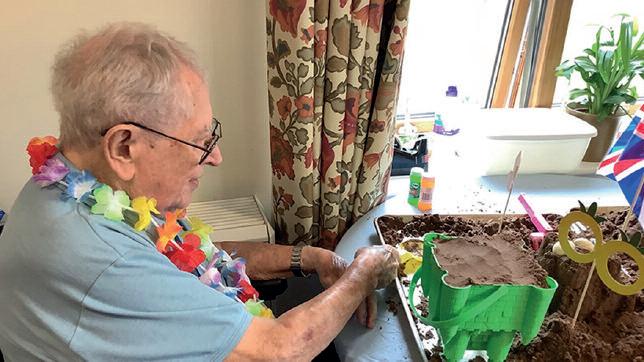
Earlier this month the Swindon and Wiltshire Innovative Technology Care Hub (SWITCH) held a training day for local Care Professionals working through Curam, the UK’s largest digital employment platform for the care sector to upskill and improve care provision in the region Care Professionals who work through Curam from Wiltshire Gloucestershire Hampshire Oxfordshire and Berkshire attended SWITCH s three-hour Wound Care training session achieving a collegelevel certification at the end of the day During the course, Care Professionals learnt about skin integrity and how to spot changes such as pressure wounds, as well as the initial response required to prevent infection whether that is basic treatment or referral
Using realistic task trainers in SWITCH’s interactive learning suite Care Professionals were given an accurate and bespoke sense of what wounds may look like on their clients and how they should react The session highlighted how skin wounds manifest on different skin types to instil cultural competency
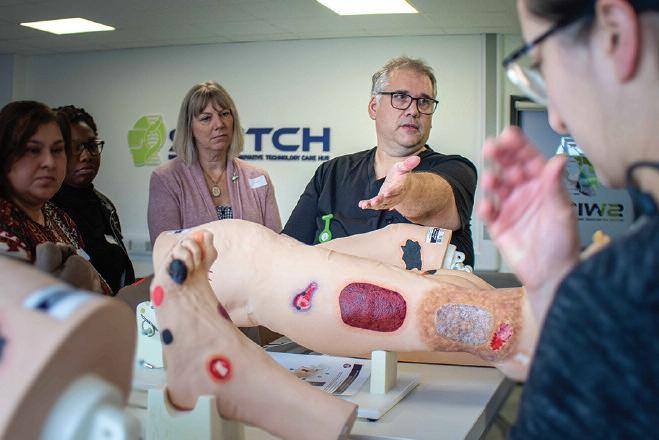
The immersive suite at SWITCH simulates healthcare environments through projections, smells and a family of life-like manikins which can talk cough cry and realistically react to care interventions This helps Care Professionals develop healthcare skills and softer skills such as patient interaction in a simulation setting The hub was funded under the Skills Development Fund from the Department for Education SWITCH provides mandatory and clinical skills training to upskill care professionals across the region The session also acted as a networking opportunity allowing Care Professionals who work for Curam on a self-employed basis to come together as a team and share experiences and best practices
The initiative reflects Curam and SWITCH’s shared ethos of improving care provisions in the UK by ensuring everyone has access to high-quality care through upskilling and training and using technology to facilitate this
SWITCH aims to enhance and upskill health and social care workers in the area with cutting-edge technology-driven facilities and equipment in simulation hospital wards Augmented reality, virtual reality and manikins that have humanistic features and can react to the care given give Care Professionals hands-on experience and the opportunity to practice highrisk scenarios in low-pressure environments
Ashley-Louise Lumley a Swindon-based Curam Champion and organiser of the training day, said “SWITCH’s training

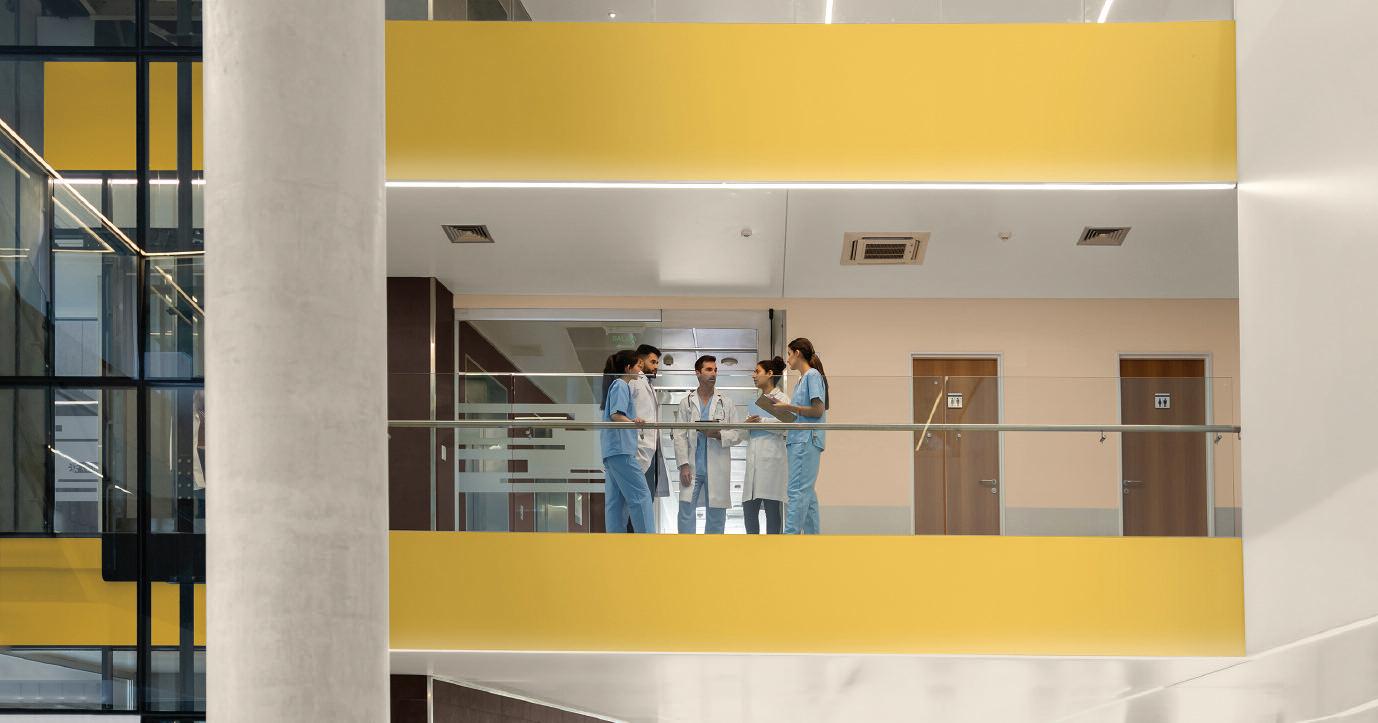
For 2025, Dulux is asking architects, specifiers and designers to embrace yellow and infuse a sense of optimism, pride and imagination into their projects As a guiding light to introduce these bold, positive shades to clients, the paint manufacturer has announced True Joy as its Colour of the Year for 2025, which is complemented by three versatile ColourFutures™ palettes
Over that last two decades, the Dulux Colour of the Year has been chosen through extensive trend research by Dulux colour experts and international design professionals The 2025 selection, True Joy™, is a bright and positive yellow that reflects people’s desire to break free, reset, and create something new and exciting As well as embracing True Joy™, Dulux is also encouraging designers to share the joy of yellow and help clients to leap out of their comfort zone - and feel confident in doing so
Yellow shades like True Joy™ can be used as a bold statement colour or an accent hue However, to help designers advise their clients on the best colour pairings, Dulux has created three supporting ColourFutures™ palettes
● Bold Colour Story: Inspired by the thrill of adventure, these bold colours bring spontaneity and energy to any space Bright blues and oranges contrast beautifully with accent yellow, making them ideal for educational and office environments where inspiration and creativity are key

● Human Colour Story: Celebrating artisanal craftsmanship, these shades of wood and clay reflect the raw materials used in handmade processes Perfect for educational and healthcare settings, these colours add a touch of authenticity and warmth
● Proud Colour Story: Drawing inspiration from diverse cultures around the world, these deep, rich and earthy browns and greens celebrate the rich heritages that make us unique Ideal for hospitality and residential spaces, they create a welcoming atmosphere where everyone feels at home

Dawn Scott, Dulux Trade Senior Colour Designer, said: “True Joy™ and its accompanying palettes offer a fresh perspective on colour's role in shaping our built environment These colours are not just trends but tools for architects and specifiers to craft spaces that resonate with the values and visions of their clients, improving our experience within the spaces we inhabit
“One of the most impactful applications of True Joy™ is within healthcare environments Paired with the earthy, natural shades of our Human Colour Story, True Joy can transform waiting rooms, corridors, and communal areas into uplifting and calming spaces This combination not only brightens the atmosphere but also connects patients and staff to a sense of warmth, creativity, and well-being ”
Marianne Shillingford, Creative Director and Colour Expert at Dulux, explains: “It may be difficult to
immediately picture where yellow paint could seamlessly slot into your home, but it’s actually much more versatile than you may first think The decision to choose the most uplifting hue in the spectrum is to spark inspiration and instil confidence to leap into the unknown and endless possibilities of what could be Whilst yellow is one of the bolder colours on the spectrum, True Joy™ is complementary to a vast range of palettes, it brings out the positivity in even the most neutral of shades and is the figurative glue that binds more daring colour stories together ”
To support specifiers and provide additional guidance on the use of True Joy™, Dulux has created the Dulux Trade Colour of the Year 2025 Specifier Guide which includes mood boards that can be used to help create the perfect space across any sector Architects, specifiers, and designers can also use the Dulux Trade Colour Schemer for colour inspiration or to create specifications for projects They can also speak with the Dulux Commercial Colour Services team for additional advice on how to use the Colour of the Year 2025

Dulux is proud of its ongoing efforts to produce durable solutions in a more sustainable manner By focusing on reducing carbon emissions and increasing the circular use of materials, Dulux ensures that products like True Joy not only enhance spaces aesthetically but also contribute to a greener future With initiatives such as using up to 70% recycled content in packaging and developing water-based paints with lower VOC content, Dulux is dedicated to helping professionals create beautiful, sustainable environments
Dulux Colour of the Year 2025 True Joy™ and the accompanying palettes will be available for purchase from10 September 2024
For more information, visit duluxtrade.co.uk/cf25 and follow #CF25 on social media

The Belmont care home part of the Sanders Senior Living recently marked Emergency Services Day with a thoughtful gesture of appreciation To show their gratitude for the dedication of local emergency workers The Belmont s residents and staff baked and delivered homemade cakes to Worcester Fire Station
The Belmont s kitchen team prepared delicious butterfly cupcakes which were beautifully presented in patterned boxes Carla Sidaway, Customer Relations Manager (CRM) at The Belmont arranged the visit to Worcester Fire Station, where the cakes were delivered as a token of thanks Upon arrival the fire station crew warmly welcomed Carla offering her a cup of coffee and a tour of the station The cupcakes were a hit and the firefighters wasted no time digging in In an unexpected twist BBC Hereford and Worcester were also present at the station, conducting interviews Carla was invited to join the broadcast giving The Belmont care home a chance to extend their gratitude further You can listen to the interview at 2 hours, 37 minutes via this link: Elliott Webb – The Worcester Film Festival is back at the end of the month (09/09/2024) – BBC Sounds

Following the successful visit The Belmont and Worcester Fire Station are planning more collaborative events There are discussions for a future visit where residents can tour the station and the fire crew has offered to provide a fire safety talk at The Belmont which is eagerly anticipated by both residents and staff
Carla Sidaway (CRM) shared her excitement about the event saying “It was a great experience to visit the Fire station and to meet the team, they were so welcoming and got the kettle on straight away! I had a tour around the station and found out about the routine of the station It was great to see the background running of the station and see the fire trucks! I hope this will be the start of a good relationship between the Fire station and The Belmont with plans for them to visit us and bring a truck for our residents to see! We look forward to seeing them again very soon!”
Tristan Lockyer Watch Commander at Worcester Fire Station expressed his appreciation stating “I would like to take the opportunity to thank you your staff and residents for the cakes today It was great to meet you and the cakes have now all gone The morning was a great success, and the crews really appreciated your support for Emergency Services Day The coverage from BBC Hereford and Worcester was also amazing – thank you so much for taking part ” Stephanie Howard Home Manager at The Belmont added The Belmont team was privileged to treat our 999 services to some delicious cakes and goodies This is just a small token of appreciation for all the hard work they do in our community The residents and staff look forward to welcoming the fire crew to our beautiful home for more coffee and cake soon
residents on a journey through the creative process showing her original story boards and a video of the story whilst explaining how her graphic novel came to life Gillian’s career as an author and illustrator spans four decades Her books have been translated into many languages and Selkie published originally by Doubleday, won the US Parent’s Guide to Children’s Media Award for Outstanding Achievement in Children s Books Gillian was introduced to Cambridge Manor’s monthly book club through her friend Judith Findlay who is the book club’s host
The graphic novel Elsie and Elvis When We Grow Old explores life in a care home through the eyes of Elvis the dog when he goes to live with his mistress Elsie who is living with memory loss Gillian shared that her inspiration came from her mother's experiences with memory loss, adding a personal touch that profoundly impacted the residents

During the session attendees were captivated by Gillian's storytelling and the warmth she brought to the discussion They appreciated the opportunity to engage with her sharing their own thoughts and experiences related to the themes of companionship and care The interaction fostered a sense of connection and understanding among the residents, creating a memorable experience for all involved Resident Laurence said of the presentation and video it was very interesting to learn the
difference between creating a graphic novel and writing a fictional novel, and how the pictures must match the words As a former teacher it was good to have conversations be asked our thoughts on the age group the book is pitched at and be able to give some feedback to the author ” For Gillian The highlight of my talk to the book group at Cambridge Manor Care Home run by Judith Findlay was the discussion we had after a video showing of my graphic novel Elsie and Elvis When We Grow Old I feared my audience might find my story ‘didn’t ring true’ or was too ‘close to home but I didn t have to worry The audience thought it was a very true portrayal of life in a care home I also worried about the residents’ reaction to the ending of my story when Elsie is in bed and no longer able to look after Elvis It was Laurence the only man in the book group who wanted to talk about that He’d been looking closely at the picture of Elsie in bed and said he thought her head was at a strange angle on the pillow and that she might be dead I said that I had tried to soften the ending, make it ambiguous with Elsie simply asleep and not mention death but the residents all agreed death needed to be talked about I came away from this book group with a surer feeling about the age of the readership of my book and also a sense of privilege to have been given such insights by such a unique audience” Gillian s visit not only sparked joy and reflection but also highlighted the importance of community and storytelling in our lives Residents and team members at Cambridge Manor are now eagerly anticipating the release of Elsie and Elvis When We Grow Old
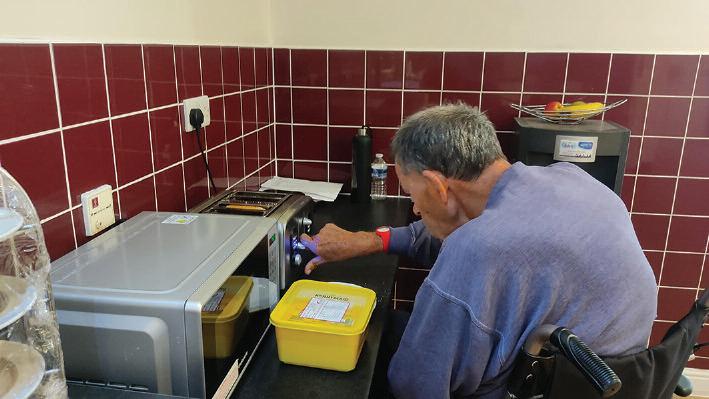



highlighted the importance of such events: “Dementia touches so many lives and raising awareness is vital Through this walk we help fund essential research and support services while educating others about the realities of living with dementia

A Highland care home has celebrated its 10th anniversary with a community party Innis Mhor care home in Tain was opened on 24 September 2014 by then Lord Lieutenant of Ross and Cromarty Janet Bowen
Her successor Joanie Whiteford was a guest at the celebration marking the milestone alongside residents staff

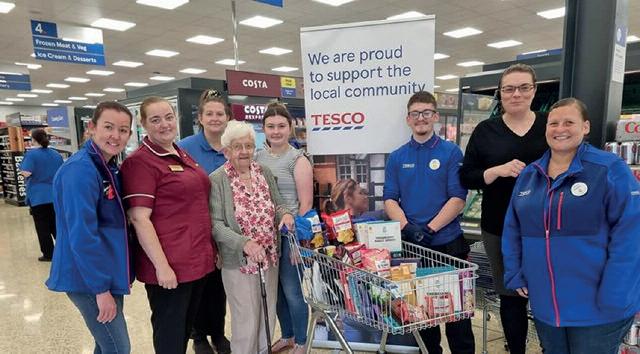
The Fremantle Trust is hosting the World’s Biggest Virtual Coffee Morning on Friday 27th September at 11:30 am at our care home in Holmer Green, raising vital funds for MacMillan Cancer Support
This event goes beyond fundraising; it is a celebration of community offering a glimpse into

Community and Lifestyle Manager
Funds raised during the coffee morning will go directly to MacMillan Cancer Support helping them continue their vital work in supporting individuals and families affected by cancer
We invite everyone to join us for a morning of coffee music and connection
For more information or to register for the event please visit



Residents from Redcot, the residential care home in Haslemere, Surrey, which is run by charity Friends of the Elderly had a magical Over the Rainbow time visiting Haslemere Hall to see the latest production of the classic tale The Wizard of Oz
“We know how much the residents enjoy the theatre especially musical theatre so when we heard that The Wizard of Oz was being performed at Haslemere Hall it was the perfect place to go for an afternoon outing said Jan Daly, the Registered Manager at Redcot
Members of the Redcot Care Team accompanied the residents along The Yellow Brick Road as they started their magical adventure to The Land of Oz The classic and timeless L Frank Baum tale tells the story of Dororthy Gale a young girl from Kansas who flies over the rainbow after being swept up in a tornado and taken to the enchanted Land of Oz “As we were waiting for the show to start the residents were reminiscing about the first time they ever saw the 1939 MGM film starring Judy Garland,” continued Jan “Once the performance got underway it was lovely to hear everyone joining in with the beloved songs –Over the Rainbow, Ding! Dong! The Witch is Dead The Merry Old Land of Oz and of course We re off to see The Wizard “During the interval the residents tucked into a delicious Cornish Ice Cream treat and continued to talk

about their ‘Wizarding’ memories,” continued Jan
The residents really know their movie trivia I had no idea that Dorothy s famous sequined shoes were originally silver, like they are referred to in the Oz books One of the residents Tim Rait who has lived at
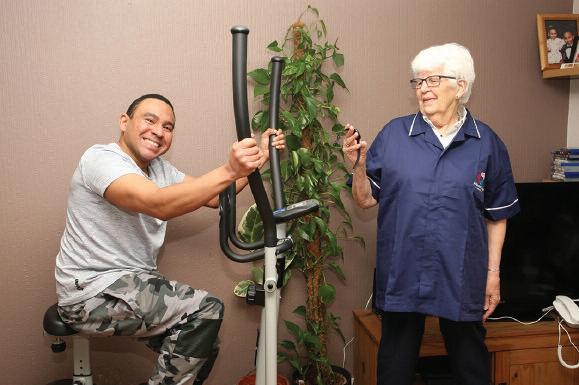
Professional Care Workers Week honours the essential contributions of Care Workers and aims to elevate their profile across the UK Abbots Care home and live-in care provider is delighted to celebrate some of their Care Workers and the big impact they have on their clients lives With approximately 152 000 vacancies in adult social care, Abbots Care and their staff would like to encourage others to consider a fulfilling career in care
At 90 years old Shirley has worked for Abbots Care for the past 24 years dedicating her time empathy and wisdom to those in need What is particularly heartwarming about this story is her intergenerational friendship with 34-year-old Robbie whom she s cared for over the past 17 years This friendship nurtured over years showcases the profound impact of heartfelt caregiving When asked why Shirley became a carer later in life, she said:
After having my 4 children and taking them to Brownies It really made me want to do something positive for my community I started off fostering teenagers and then discovered Abbots Care where I instantly felt part of a family
Shirley is encouraging others to consider a career in care and said “It’s the most rewarding and fulfilling job to benefit the lives of others which enhances my own life ”
Paula works for the Dorset branch of Abbots Care and has said that the best thing about being a Care Worker is “waking up in the morning knowing that you have a sense of purpose for the day Visiting clients each with different needs is fulfilling when supporting/delivering person centred care and leaving them with a smile on their faces” She believes that caring comes from the heart”, she is privileged to meet so many people hear their life stories and play a small part in their life
Care Worker Godfrey has just been awarded Abbots Care s Team Star of the Quarter

The co-ordinator team highlighted him for this award due to the polite and attentive nature in which he delivers care he always takes his time and makes sure everything is done properly and to the Client’s expectations He said “caring is something that comes naturally to me I find so much gratification in caring and assisting wherever and whenever I can The desire and passion to care for and help others achieve their needs and aspirations drives me the most Abbots Care is a top equal-opportunity employer that cares for its employees and clients They have helped create a perfect environment for me to care for and help others My colleagues and our clients deserve a special mention as well without them I wouldn t be able to fulfil my desire to help”
New CHSA campaign designed to inform buyers and end users of cleaning chemicals of the value of regulations
The Cleaning & Hygiene Suppliers Association has launched a campaign designed to spread the word about the importance of regulations when buying cleaning and hygiene chemicals
Compliance with formal UK Government European Union and industry-standard regulations is essential if buyers are to be certain product claims are legitimate and proven Adherence to regulations guarantee safety They underpin transparency and ensure consistency They support buyers informed decision making by providing a framework for comparison so a buyer really knows if they are getting the product or solution they need They also provide accountability giving buyers a route to recourse if needed In short they underwrite an ethical
approach
Buyers and end users can also turn to regulations to be certain they are not misled by environmental claims in the rush toward sustainable solutions
Lorcan Mekitarian Chair of the Cleaning & Hygiene Suppliers Association said: Buyers and end users need to be able to trust the product and sales and marketing claims They need to be certain of the balance between efficacy and sustainability and they need to make sure they are using the right product for the job in hand They are not chemists however so may be misled by seductive sales and marketing messaging
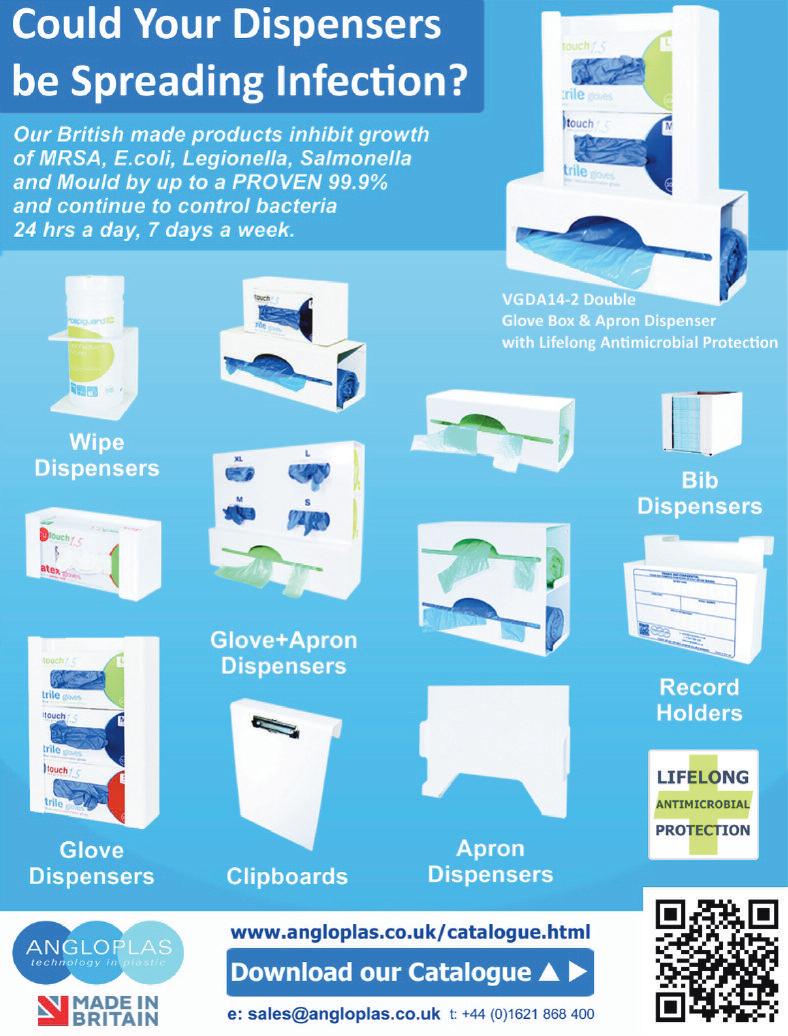
“Our advice is to talk to your manufacturer and ask for evidence to support their claims This will come in the form of their technical data sheets, third party verifications and certifications and, importantly, proof of regulatory compliance ” Gobble-de-gook or undefined phrases to be wary of include: ‘non-renewable chemicals’ ‘chemical-free’ ‘natural’ ‘five times filtered water’ and ‘non-toxic’ ‘Biodegradable’ is also a confusing term As applied to cleaning products it is defined in current legislation (Detergent Regulation (EC) No 648/2004 and corresponding UK post Brexit legislation)
Something claiming to be organic should be certified by for example the Soil Association Net-zero claims should be based on the international net-zero standard (https://sciencebasedtargets org/net-zero) or another reliable third party verified certification
Every member of the CHSA has signed our rigorous Code of Practice, which demands our members trade ethically Amongst other stipulations it requires members to: conduct business dealings in an open honest fair and proper manner and in accordance with the laws rules and regulations of the UK and EU ensure all public statements made by and on behalf of the Member are decent honest and truthful ensure no false or exaggerated claims are made verbally in literature electronically or in any other way • hold and provide evidence on request for product and service claims particularly with reference to legislation certifications and accreditations
The CHSA Code of Practice also includes the Competition & Market’s Authority’s Green Claims Code Its principles are summarised as: Claims must be truthful and accurate
Claims must be clear and unambiguous
Claims must not omit or hide important relevant information
Comparisons must be fair and meaningful
Claims must consider the full life cycle of the product or service
Claims must be substantiated
Finally every member of the CHSA s Accreditation Scheme for manufacturers of cleaning chemicals has signed the CHSA s own ethical marketing code
@CHSACleaning www CHSA co uk




mk-hire co uk See the advert on page 19

MOWOOT II – proven solution to chronic constipation without medication
Developed by a team of doctors and other healthcare professionals, MOWOOT II performs gentle abdominal massage to speed up intestinal passage in people experiencing chronic constipation
Clinically proven safe and effective relaxing and sideeffects free MOWOOT II
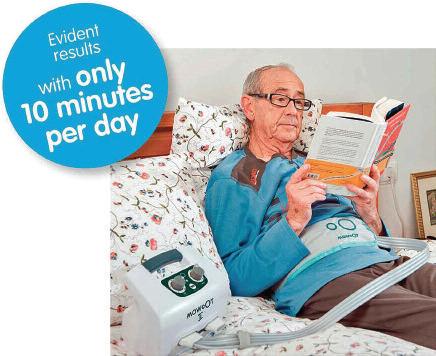
Abdominal Massage Therapy System combats constipation and provides soothing relief to affected people
Easy to use and comfortable the MOWOOT II treats and manages constipation in people with spinal cord injuries multiple sclerosis sufferers Parkinson’s Disease patients and people with constipation related to prescription medication MOWOOT II also helps to relieve idiopathic constipation experienced by menopausal and post-menopausal women


and older and elderly people In clinical studies
MOWOOT II increased evacuation frequency softened stools, improved regularity, reduced gasses relieved bloating and eased off abdominal discomfort 10 to 20 minutes daily of relaxing abdominal massage with MOWOOT II rapidly reduces symptoms of constipation Evident results are experienced only a few days after the first treatment Regular abdominal massage with MOOWOOT II ensures lasting health benefits and better quality of life
MOWOOT II – effective solution to chronic constipation for better quality of life! Supplied



Our Integrity Static Cushions crafted with high-quality materials and innovative design are effective in preventing and managing pressure ulcers by redistributing pressure and minimising skin damage They feature a larger surface area that spreads the user's weight reducing pressure on specific points EasyGo patient lift and transfer chair addresses common issues found in traditional hoists which are often cumbersome and difficult to manoeuvre especially in tight spaces and require multiple staff members EasyGo simplifies the lifting and transferring process enhancing patient dignity and comfort It is designed to move between beds wheelchairs toilets and cars Additionally we have developed a patient transfer seat that can incorporate any Integrity Static Cushion providing optimal pressure relief during transfers

Pressure ulcers are largely preventable with the right approach Our goal is to make your job easier, allowing you to focus on exceptional care and improving residents' quality of life We offer comprehensive product training and support including inperson and online sessions detailed manuals quick-start guides and access to our support team for advice and updates on best practices in pressure ulcer prevention 01457 890 980 | sales@sumed co uk | www sumedinternational com See the advert on the back cover for further information
service

as well as curtains and offers a comprehensive range of shutters
Doug says: “We stock two ranges of silent gliss corded curtain tracks and two ranges of silent gliss uncorded curtain tracks the fitted prices for which are available on this website All of the aluminium silent gliss tracks stock can be shaped and fitted into bay windows, as can some of the poles We also have ready access to many more ranges of both tracks and poles, most of which we can get in one working day “To read more of what our customers say about us please do look us up on Checkatrade checkatrade com/mrtrax
Call now to speak to one of our team on 0800 3345114 or 07968 242004 email us at doug@mrtrax co uk or see the advert on page 8

NCCO International announces the launch of Task Manager an innovative food safety task management and temperature monitoring solution designed for the senior living and residential care home sector Task Manager addresses critical pain points in food safety compliance operational efficiency and resident satisfaction
Task Manager is a game-changer for the senior living industry said Karl Rose Managing Director of NCCO International, "Our system not only ensures compliance with food safety regulations but also enhances the quality of life for residents by guaranteeing safe and nutritious meals
Task Manager assists senior care facilities in adhering to local state, and federal food safety regulations aiming to reduce the risk of foodborne illnesses among elderly residents By providing detailed record-keeping and log management Task Manager supports facilities in maintaining audit readiness facilitating health inspections and compliance checks

Task Manager automates temperature monitoring for refrigerators freezers and food storage areas to help maintain safe limits without manual checks The system organizes food safety-related tasks, such as cleaning schedules equipment maintenance and staff training to help ensure thoroughness With consistent monitoring Task Manager helps maintain the nutritional value and quality of stored and prepared food Real-time alerts for temperature deviations enable quick corrective actions, potentially preventing spoilage and ensuring residents receive high-quality meals For more information about Task Manager please visit www ncco eu or contact David Webster at dwebster@ncco com

By

Malnutrition remains a significant issue in care homes where the elderly are particularly vulnerable As a registered dietitian working in the community and in hospital wards often with elderly people who have experienced fall, I wish more people knew about the prevalence of malnutrition and how to combat it before they ended up in hospital
Recent statistics paint a stark picture: Around one in 10 people over the age of 65 are malnourished or at risk of malnutrition and this figure rises alarmingly to 45% among those in their 90s According to the British Association for Parenteral and Enteral Nutrition (BAPEN) malnutrition costs the UK approximately £23 5 billion annually with older adults being disproportionately affected
As the population ages addressing malnutrition and its associated complications, such as frailty and sarcopenia, becomes ever more critical By focusing on early detection and strategic nutritional interventions, including the use of protein, care homes can play a vital role in safeguarding the health of their residents
SPOTTING THE EARLY SIGNS OF MALNUTRITION
The first step in combating malnutrition is recognizing its early signs
The Malnutrition Universal Screening Tool (MUST) is a valuable resource for this purpose enabling caregivers to systematically assess the risk of malnutrition in residents by considering factors such as Body Mass Index (BMI) unintentional weight loss and the impact of acute illness on nutritional intake
KEY EARLY SIGNS TO MONITOR:
1 Unintentional Weight Loss: A significant early indicator of malnutrition is unintentional weight loss Regularly monitoring residents' weight and comparing it to previous measurements is essential A loss of even 5% of body weight over a few months can signal malnutrition and warrants immediate attention
2 Decreased Appetite: A reduced appetite is often a precursor to malnutrition Residents may skip meals, eat smaller portions, or show a lack of interest in food It s important to understand the reasons behind these changes which could be linked to dental issues depression or medication side effects
3 Physical Changes: Signs such as muscle wasting thinning hair dry skin or dental problems may indicate nutritional deficiencies These physical symptoms are often subtle but crucial indicators of potential malnutrition
4 Fatigue and Weakness: Increased tiredness or difficulty performing daily activities can be related to inadequate nutrition This could also signal the onset of sarcopenia where the loss of muscle mass and strength makes everyday tasks increasingly challenging THE ROLE OF NUTRITION IN PREVENTING AND MANAGING FRAILTY
Frailty a condition characterized by decreased strength endurance and physiological function is closely linked to malnutrition and is a major concern in care homes Proper nutrition is key to preventing and managing frailty particularly through the adequate intake of protein which is essential for maintaining muscle mass and function STRATEGIES FOR NUTRITIONAL INTERVENTIONS:
1 Prioritize Whole Foods: Ensuring a diet rich in whole foods is foundational Protein-rich foods like eggs lean meats, fish, dairy products, and legumes should be emphasized as they not only support muscle
health but also provide essential vitamins and minerals that contribute to overall well-being
2 Incorporate Protein Supplements When Necessary: In cases where residents struggle to meet their protein needs through diet alone perhaps due to a lack of appetite or difficulty chewing protein powders or fortified drinks can be effective These supplements can be easily added to meals snacks or beverages ensuring that residents receive the protein they need without overwhelming them with large portions of food
3 Distribute Protein Throughout the Day: Research shows that distributing protein intake evenly across all meals is more effective for muscle protein synthesis than consuming large amounts at a single meal Caregivers should ensure that residents receive adequate protein at breakfast lunch and dinner to maximize the benefits for muscle maintenance and frailty prevention
ADDRESSING BARRIERS TO ADEQUATE NUTRITION
While boosting protein intake is essential we should also address the barriers that may prevent residents from consuming enough nutrients Factors such as taste preferences difficulties with swallowing, or digestive issues can all impact nutritional intake Caregivers should work closely with dietitians to develop personalized nutrition plans that accommodate these challenges potentially incorporating protein powders and other supplements in palatable and easy-to-digest forms NUTRITION IS KEY TO INCREASING HEALTHSPAN
Malnutrition in care homes is a pressing issue that requires vigilant monitoring and proactive management While the numbers alone tell us the stakes are high intervention is more than about reducing costs The ability to stand up from a chair unaided allows our elderly residents independence By spotting the early signs of malnutrition and implementing strategic nutritional interventions, caregivers can help prevent and manage frailty significantly improving the quality of life for residents By addressing malnutrition and frailty head-on care homes can help residents not only avoid the adverse effects of these conditions but also thrive in their later years

WHAT IS DYSPHAGIA?
Dysphagia is a medical condition that makes swallowing food and drink more difficult Depending on the severity some textures may be more difficult to swallow or somebody may have lost the ability to swallow at all Regardless this can make mealtimes much more difficult, which is why care home caterers must know about this condition and how to support those who have it
A few conditions can cause dysphagia including cancer head injuries a stroke or dementia Age can also play a role in developing this condition meaning there could be a higher likelihood of some residents suffering from this EFFECTS OF DYSPHAGIA
Dysphagia doesn’t just affect mealtimes – it can also: Impact on quality of life: If somebody is no longer able to eat and drink as they ve been able to they may become withdrawn and develop a low mood The change can be difficult to get to grips with which is why supporting residents through their dietary transition and making sure they’re properly catered for is so important
Lead to malnutrition and dehydration: A lack of food and drink due to not being able to swallow or chew properly can mean that residents aren’t properly hydrated or receiving enough nutrition This can result in lower energy levels and in more extreme cases can also lead to further health complications
• Cause choking: Without specialist catering somebody with dysphagia may not be able to swallow their food which can be a choking hazard
FRAMEWORK?
By Rob Henry,
Head of Culinary Solutions and Compliance at EF Group (www ef- group co uk)
dysphagia who have trouble chewing and swallowing Using this framework caterers in the care industry can determine which foods and drinks would be easiest for people with this condition to consume IDDSI consists of eight levels ranging from 0 to 7 with drinks ranging from 0 (thin) to 4 (extremely thick) and foods ranging from 3 (liquidised) to 7 (regular and easy to chew) These indicate the texture and thickness of foods and drinks and give some steer as to which ones would be safest for somebody with dysphagia to consume
ADDITIONAL CONSIDERATIONS FOR CATERING TO
DYSPHAGIA
When you’re preparing to cater for residents with dysphagia there are a few extra things you might need to consider These include:
Training your staff on the IDDSI framework: Ensuring your staff understand the framework what it means and how to apply it is crucial Holding training sessions on this can make sure everybody is on the same page when it comes to catering to the needs of residents with dysphagia
Knowing when to modify the menu to resident needs: Once your team are trained on the IDDSI framework, this must be implemented into your catering practices This should involve assessing each resident’s dietary needs to see if they require modifications and monitoring this over time in case further changes are needed
Getting in the correct nutrients and fluids Alongside modifying diets based on what is easiest for residents to consume you should be ensuring all residents are properly hydrated and receiving a balanced and nutritious diet Whether their food is liquidised, regular or somewhere in between hydration and nutrition must never be reduced even though you might need to alter the way these are offered to residents
Making mealtimes more enjoyable: If somebody has been living with dysphagia without a modified diet they may need some extra encouragement at mealtimes once the modifications have been made Try making mealtimes social introducing different flavours or recipes and regularly rotating menu options to keep them interested and more likely to finish their food
Supporting residents with dysphagia is a key duty of caterers in the care industry and can have a huge impact on their wellbeing, health and quality of life Therefore, it’s vital that your catering team are aware of the signs of the condition and how the IDDSI framework can be used to prescribe a better approach to their mealtimes

Food procurement specialists allmanhall, explore the importance of nutrition and hydration in older people specifically considered for a dignified and person-centric dining experience
Proper nutrition and hydration are critical in care homes directly impacting the health wellbeing and overall quality of life for residents Research by BAPEN reveals that malnutrition affects 35% of care home residents in the UK leading to a variety of health issues including increased infections, poor wound healing mental health decline social isolation and increased frailty This underlines the need for a comprehensive person-centric approach to food and drink in these environments
As people age the risks of malnutrition and dehydration increase compounded by the natural decline in thirst reflex and in some cases cognitive impairments such as dementia These factors make it challenging for older individuals to maintain adequate nutrition and hydration Therefore it s crucial that care home staff adopt a dignified approach to meals, recognising that the involvement in making choices about food remains important even when other capacities are diminished

At a recent National Association of Care Catering (NACC) Seminar care professionals emphasised the significance of creating a positive mealtime experience Engaging residents in conversations about their food preferences understanding their personal histories and ensuring that texture-modified meals are both nutritious and appealing are vital steps in enhancing mealtime satisfaction
Hydration is equally important playing a key role in bodily functions and the prevention of conditions like urinary tract infections and chronic renal disease Strategies to encourage fluid intake include offering a
variety of beverages, promoting "hydration hour" with mocktails, and providing high-fluid-content foods like soups and yogurts It s also important to educate care home staff on recognising signs of dehydration which can manifest as tiredness headaches and poor concentration
Nutritionally care homes should focus on nutrient-dense foods rather than calorie-dense ones Incorporating ingredients like eggs seeds, and Greek yogurt can help ensure that residents receive essential nutrients Additionally increasing dietary fibre through foods like whole grains, legumes, and unpeeled fruits can support digestive health and reduce the risk of conditions such as diabetes and heart disease It's important however to introduce fibre gradually to avoid digestive discomfort
For residents with dysphagia a condition that impairs swallowing care homes must offer texture-modified diets that are both safe and nutritious Providing adequate training for staff on preparing these meals, ensuring that they are nutritionally fortified, and enhancing flavours with herbs and spices can make these meals more enjoyable for residents
In conclusion providing a holistic person-centric dining experience in care homes is essential for maintaining the health and dignity of residents By focusing on nutrition hydration and individual preferences care homes can significantly enhance the quality of life for their residents
The mealtime experience is so much more than just food Care establishments across the UK are partnering with allmanhall to manage their food procurement achieve savings and improvements and to access support to enhance the overall dining experience Get in touch – hello@allmanhall co uk
no-melt formula resulting in shelf-stable ice cream products that can be enjoyed by everyone SCREAMIES ice-scream also never gets softer than IDDSI Level 4 making it the perfect treat for those with dysphagia

market
Launched in 2016 SCREAMIES is a brand with one purpose: to deliver the taste of sumptuous old-fashioned ice cream and make it accessible to everyone Each SCREAMIES product is created with a spe-
As well as the traditional three flavours Screamies offers Chocolate and Salted Caramel with added Protein for those with additional nutritional needs With a long shelf life Screamies can be stored at ambient temperature and frozen when the time suits Flavour Creations also offer a wide range of market leading supporting products for those looking to provide something extra to patients Pre-thickened Ready to Drink ranges include in excess of 20 flavour profiles Advital nutritionally complete powder comes flavoured and neutral and is used in snacks like Advital chocolate mousse and Fruits with Attitude Flavour Creations also supply high quality moulds and Shape It to assist with food preparation at all IDDSI levels
To find out more simply contact Albany Products at enquiries@albanyproducts co uk or call on 01706


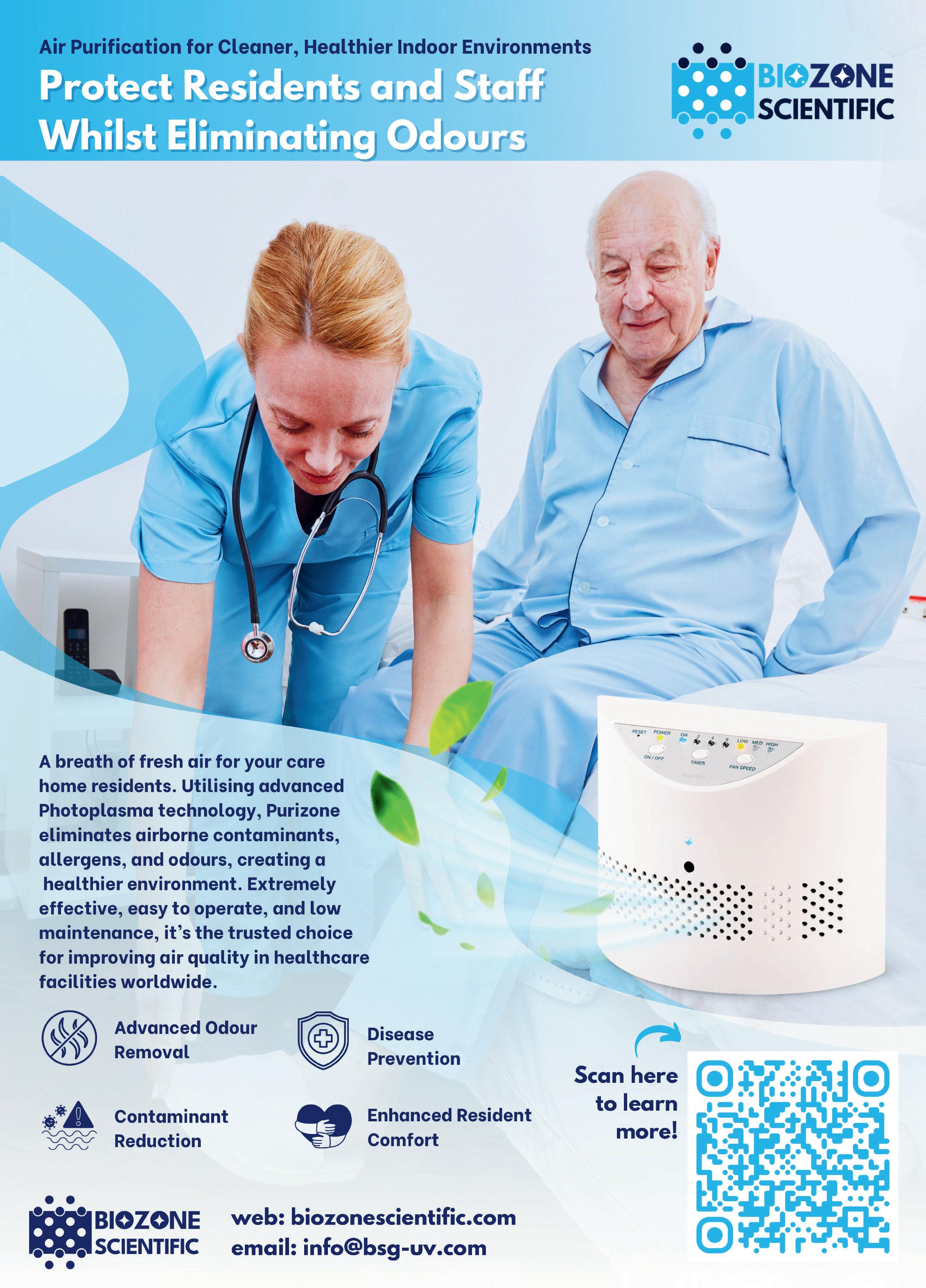



Oxy-Gen
This
Oxy-Gen
All
Carbon
With
See





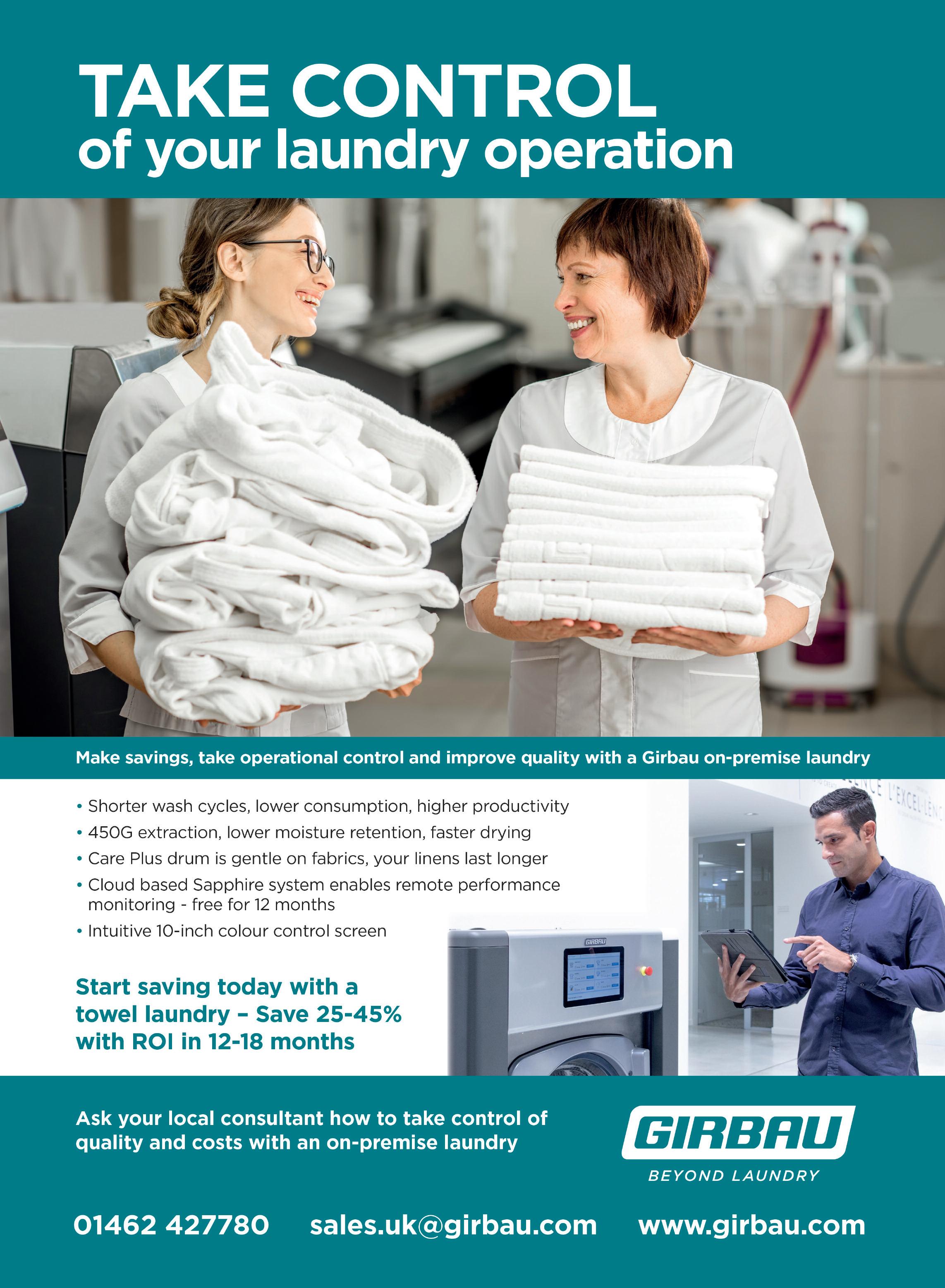
When

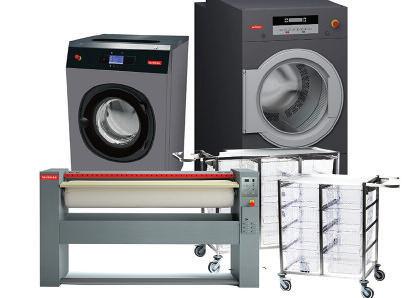


By Scott Williamson, Managing Director,

In the ever-changing and often demanding environment of residential and nursing care homes prioritising the well-being of residents is paramount As care providers it is imperative to explore innovative methods to enhance the quality of life for those in care especially individuals living with cognitive impairments such as dementia One highly impactful method embraced in recent years is sensory stimulation a comprehensive approach that enhances physical, emotional, and cognitive well-being With the integration of advanced AI technology, newer technologies such as personalised, relaxing music videos breathe new life into old black-and-white photos by colourising them accompanied by soothing music captivating landscape visuals and cherished family photos or video messages This provides a distinctive way to deliver a holistic, sensory-enriched experience that significantly benefits elderly residents and those with dementia
DIVERSE FORMS OF SENSORY EXPERIENCES
There are many ways to incorporate sensory experiences into daily care each offering unique benefits for residents
1 Visual Stimulation: Personalised relaxing music videos use serene natural landscapes and family memories to captivate residents' visual senses These familiar images, paired with scenic backdrops evoke positive emotions and comfort Advanced technologies such as AI-powered colourisation of old black-and-white photos bring memories of the past to life enriching the experience further by reconnecting residents with their personal history
2 Auditory Stimulation: The choice of music in these videos is key Rather than familiar music that may evoke specific emotions or memories soothing and non-intrusive sounds are purposefully chosen to enhance deep relaxation and open the senses to help immerse themselves in the visuals and relax without the distraction of nostalgia, allowing for a more profound sensory experience
3 Tactile Stimulation: Personalised videos can be paired with tactile activities to further engage residents Watching these calming visuals while interacting with textured objects fidget blankets or engaging in simple activities like handling soft fabrics can provide enhanced comfort and sensory richness
4 Olfactory Stimulation: While videos alone do not engage the sense of smell pairing them with aromatherapy sessions using calming scents like lavender or invigorating fragrances like citrus can amplify the relaxation experience making it more immersive and holistic
5 Gustatory Stimulation: Taste experiences can also complement sensory videos For example, while watching

THE
personalised landscapes or family-themed videos, residents can engage in taste sessions, trying familiar and comforting flavours adding another dimension to the sensory experience
The implementation of sensory stimulation has wide-reaching benefits that can positively impact residents' emotional, psychological, and physical health Regular sensory activities offer the following advantages:
- Reduction in Agitation and Restlessness: Especially for residents with dementia, these videos create a sense of familiarity and calm reducing anxiety and behavioural issues
- Improved Cognitive Function: Engaging residents’ brains through visual and auditory stimuli helps maintain and in some cases improve cognitive abilities providing meaningful engagement
- Enhanced Communication: Residents who struggle with verbal communication often respond emotionally or cognitively to visual and auditory cues Personalised videos offer alternative ways for residents to express themselves facilitating greater interaction
- Increased Social Interaction: When shared in group settings, these videos encourage social engagement, helping reduce feelings of isolation and loneliness
SENSORY STIMULATION FOR DEMENTIA PATIENTS
For dementia patients sensory stimulation plays a particularly important role in their care Personalised videos offer structure, evoke memories, and facilitate moments of connection between residents and caregivers or family members Combining these videos with other sensory activities such as memory boxes filled with personal items can deepen the experience, triggering memories and meaningful conversation
CREATING SENSORY ROOMS IN CARE HOMES
Many care homes have found success in creating dedicated sensory rooms Personalised relaxing music videos are ideal for use in these spaces where they can be combined with soft lighting calming scents and tactile objects to offer a fully immersive environment These sensory rooms provide a tranquil retreat for residents allowing them to engage multiple senses in a way that is soothing and beneficial
THE POWER OF VISUAL LANDSCAPES FOR SENSORY STIMULATION
Visual landscapes such as nature scenes are an invaluable tool for sensory stimulation For residents who may no longer be able to experience the outdoors firsthand, these videos offer a powerful connection to the natural world Scenes of oceans forests or mountain views have been shown to reduce anxiety alleviate stress and promote mental well-being The immersive quality of these visuals when combined with soothing music provides a window to the outside world offering comfort and emotional enrichment for residents who may feel disconnected from nature
AI TRANSFORMING RESIDENT CARE
The integration of AI into sensory stimulation is revolutionising how care homes approach resident wellbeing AI technologies such as the colourisation of old photographs help residents reconnect with their past in vivid detail These enhanced visuals combined with calming music and personal video messages from loved ones create a multi-sensory experience that reduces anxiety and promotes emotional well-being This innovative use of AI not only improves the sensory experience but also strengthens cognitive function making it an essential tool in modern care homes
THE VALUE OF PHOTOS AND VIDEO MESSAGES FROM LOVED ONES
Incorporating photos and video messages from loved ones adds an emotional layer to sensory stimulation Seeing familiar faces and hearing the voices of family members triggers emotional recognition which can provide comfort and reduce anxiety especially for those experiencing memory loss This personalised approach creates meaningful connections stimulating both visual and auditory pathways and offering moments of joy and clarity for residents
Moreover video messages combat feelings of loneliness and isolation Residents feel a stronger sense of belonging and connection to their loved ones, even if they cannot be physically present This can significantly enhance their overall well-being contributing to a more enriching care environment
SENSORY
Sensory therapy particularly 30-minute video experiences serves as a versatile tool for structured activities With the ability to loop the videos for longer experiences caregivers can find moments of respite while enhancing the well-being of residents Creating a calm and engaged environment through sensory videos can improve the caregiving experience and reduce caregiver burnout
CONCLUSION
The integration of sensory stimulation, particularly through personalised AI-enhanced relaxing music videos offers a transformative approach to improving the well-being of residents in care homes By engaging multiple senses including visual, auditory, tactile, olfactory, and even gustatory, these videos provide a holistic and enriching experience that benefits both residents and caregivers For individuals living with cognitive impairments like dementia these sensory experiences evoke memories reduce anxiety and foster emotional connections
The use of advanced AI technologies such as the colourisation of old photos combined with serene landscapes, soothing music, and messages from loved ones, adds a deeply personal and meaningful dimension to the care environment The implementation of sensory rooms and dedicated sensory activities not only enhances residents' physical and emotional health but also offers caregivers a valuable tool for creating a calm structured environment As care homes continue to evolve embracing sensory therapies will remain essential in promoting a higher quality of life for elderly residents and those living with dementia







Increase
Improve
Deliver

PASS
Visibility of allergies vaccinations and medications especially useful for clients unable to reliably share their personal information
• Using medical information to inform care planning
Ensuring that the right medication is delivered to the right person in the timeliest manner In one case this allowed the administration of antibiotics on a Friday evening aiding the service user’s swift recovery from infection
Available to all PASS users at no additional cost PASS GP Connect is significantly more efficient than waiting for a GP response It’s also a positive step forward on the path to the DHSC s goal for widespread digitally enabled care and is in full alignment with their ambition for joined up care for everyone
Get in touch: www everylifetechnologies com hello@everylifetechnologies com
The job of a care worker though immensely rewarding is not without its challenges A growing demand for social care has seen carers placed under greater strain, with a mounting workload and limited resources
Increasingly, carers are also exposed to abusive and even violent behaviour from service users and their relatives Be it deliberate or as often the case unintentional Such aggression can leave a profound mark on diligent and dedicated care staff

The solution to many a modern-day problem is often tech and so too is this the case when dealing with today s care landscape STAFF ALARM SYSTEMS
Tech has proven to be a friend to the care worker automating administrative tasks, enhancing reporting and, in the case of staff alarm systems protecting them from potential harm What was originally a bell to alert colleagues to the need for assistance has become far more sophisticated The modern safety alarm is discreet can be easily attached – if not part of – the wearer’s uniform It is supremely efficient and designed with the accuracy to pinpoint the exact location of an active call in a ward of over 80 rooms
the press of a button is incredibly empowering Be it calling lunchtime cover on a 1-to-1 patient, or requesting urgent assistance with an abusive resident the alarm offers staff a greater deal of control assurance and resources while at work HOW DOES IT WORK?
With the press of a button carers have immediate access to a team of responders able to assist, provide cover, and - where neededintervene to de-escalate high-risk situations This access instils confidence in staff: confidence that the highest quality of care can be delivered and confidence in their safety in the workplace For overwhelmed care workers the ability to summon help with
In Pinpoint s case an integrated staff safety system ensures full site security When activated a personal staff alarm emits infrared signals to receiver units installed throughout the building These, in turn, send vital information to display units and devices such as pagers and desktops detailing the exact location and type of call – assistance or emergency
Within 85 milliseconds of triggering an alarm colleagues are informed that an incident is taking place and, crucially, exactly where it is in the building (CONTINUED OVERLEAF)

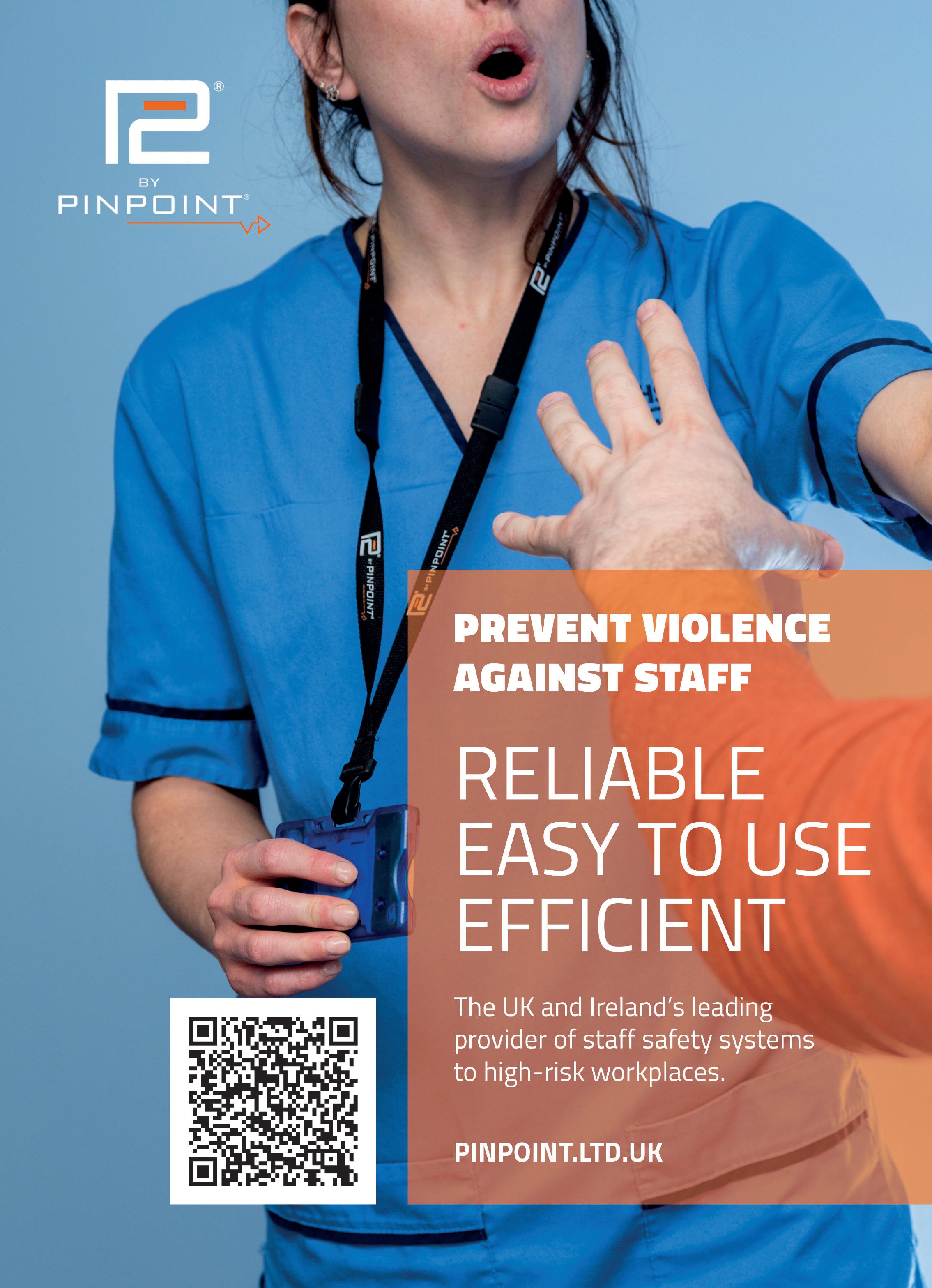




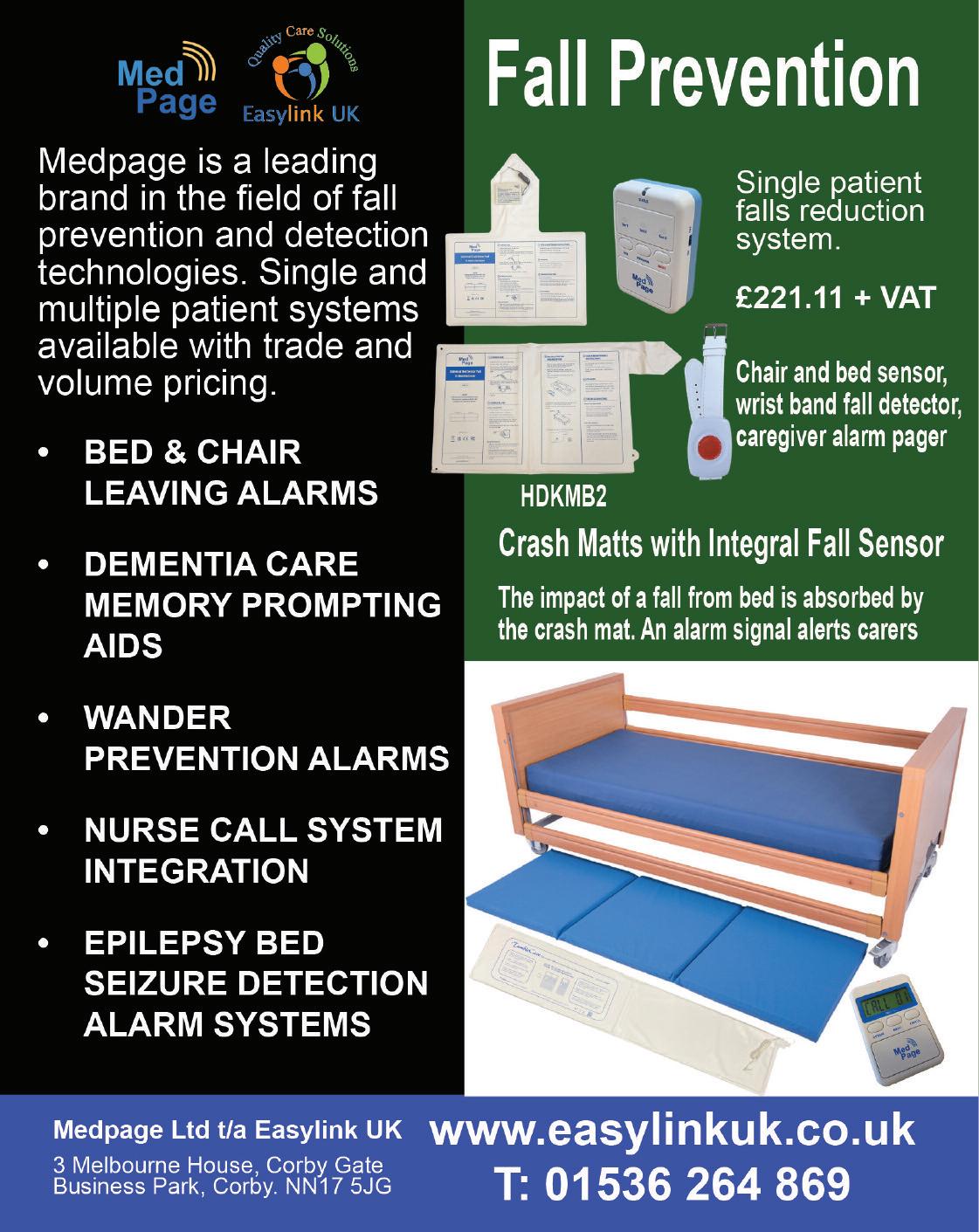


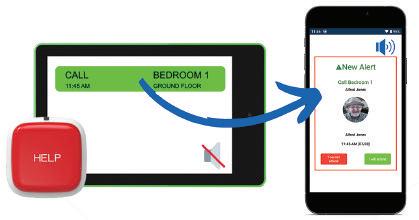
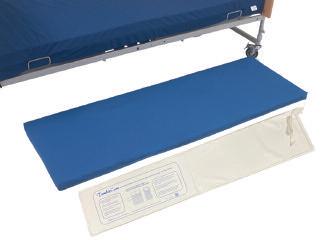

Explore the Char ted Manager Degree Apprenticeship (CMDA) with Mar y Seacole at the University of Exeter
Have you ever wondered about advancing your career, but unsure how to gain the qualifications required whist working? There is an ever-increasing demand for skilled managers within the care sector, and having practical experience is just not enough to fill those positions
Gaining a BSc (Hons) in Responsible Business Manager and



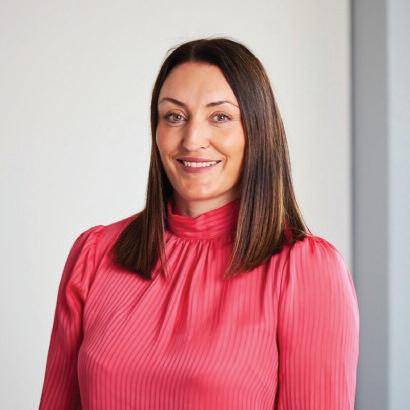
Work can and should always be a force for good But one in four workers (25%) in the north of England have experienced conflict at work over the past year, with most choosing not to report incidents such as verbal abuse and harassment according to the 2024 CIPD Good Work Index: North of England report
The research – from the annual survey of close to 900 workers across Yorkshire and Humber the North East and North West - also reveals that victims of workplace conflict suffer more from poor mental health and a lack of trust and confidence in management
As a trusted advisor to the government, the CIPD - the professional body for HR and people development - is calling for employers to ensure line managers are trained and prepared to deal with conflict effectively This starts with addressing the underlying causes such as poor management practices and excessive workloads
WHAT CONSTITUTES AS BULLYING, DISCRIMINATION, AND HARASSMENT?
The world of work is changing at pace and line managers are facing many new people challenges For some employees, homeworking and the rise of technology threatens to create an ‘always-on’ culture where issues can be spread far and wide, across online chat platforms Therefore it’s never been more important for line managers to play a vital role in identifying challenging and dealing with conflict at work
including unfair treatment and sexual harassment
To achieve this they need to participate in regular people management training This should offer specifics around what bullying discrimination and harassment looks like and how to resolve conflict by being able to have difficult yet open and honest conversations to prevent and tackle conflict at work
Managers must also take the time to understand their organisation’s policies and procedures on bullying, discrimination, and harassment and how to report issues in a timely manner, so they are investigated swiftly
IS A MANAGER’S ‘STYLE’ CAUSING CONFLICT AND STRESS?
Managers are at the heart of people s experience of their workplace What they do and say has a significant impact on their team s motivation engagement and overall performance This explains why management style can often be the source of conflict and is the second most common cause of stress at work after unmanageable workload
People managers must reflect on their own management style and the impact their behaviour has on others They should become part of the solution to resolving workplace conflict at an early informal stage before incidents escalate
To do this people managers must be open collaborative and compassionate to create a culture where staff feel trusted and confident to speak up without fear of judgement or being ignored
AVOIDING EXCESSIVE WORKLOADS & AN ‘ALWAYS ON CULTURE’
Rising technology and remote working is giving many employees –particularly parents and carers – a better work-life balance However, the blurred lines between work and home have led to many staff working longer hours to manage increasing workloads – often out of hoursand working when they are ill
Line managers need to take effective steps to manage the main risks of excessive workloads which can cause stress and mental ill health among their workers

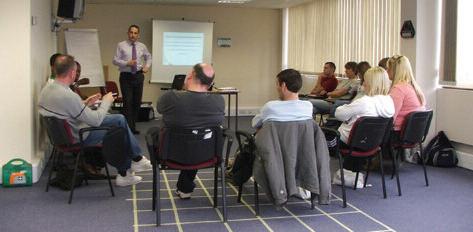


the successful franchisee to deliver SecuriCare training programmes in their designated territory
By Daphne Doody-Green, UK Market Director, CIPD
As part of this they must assess individual and team workloads to make sure they are reasonable set clear expectations about taking breaks and act as role models for healthy working practices This includes taking time off themselves when sick Providing staff with autonomy to control how, where and when they work is also key to empower rather than restrict them in their roles
MONITORING AND REVIEWING WORKPLACE CONFLICT
Staff attitude surveys will enable people managers and the wider organisation to collect feedback in areas like gender equality and bullying and harassment
Monitoring the gender diversity of the workforce at every level, including for recruitment and promotion will also help to highlight if there is any potential discrimination or harassment on grounds of gender
NEW LAW TO PROTECT WORKERS FROM SEXUAL HARASSMENT
From October 2024 the Worker Protection (Amendment of Equality Act 2010) Bill will strengthen existing protection for workers against sexual harassment
The new law will place a new duty on employers to take reasonable steps to prevent sexual harassment Tribunals will have the power to increase compensation by up to 25% if they find an employer has breached this duty
Therefore it is essential that people managers are proactive and systematic in how they tackle and prevent sexual harassment at work by providing evidence of the reasonable steps taken This includes undertaking regular training and development to understand their role in preventing and addressing sexual harassment
FREE RESOURCES FOR LINE MANAGERS
The CIPD offer a range of free resources for people managers to develop their management capabilities and prevent and tackle workplace conflict including bullying and harassment



But
By Daniel O ’Shaughnessy, Programme Manager - Better Security, Better Care, Digital Care Hub

Check
Strengthen
continuity plan: Ensure it covers how you will manage if you were to lose access to data for a period of time Watch out for our new cyber incident response checklist – coming in October for Cyber Security Awareness Month
Create back-ups Identify what data is essential to running your service, and create a backup separate from


Founded

quality

Mike Whitehead CEO of Danforth Care commented: “Since day one our mission has always been to create a home-like atmosphere for our residents that is safe, secure, and encourages independence We are committed to providing the highest quality of care and services to our elderly residents and we strive to create a place where they can be comfortable while feeling respected and valued The support from Warwick and the financial backing they received from OakNorth will help accelerate our growth highlighted by our expectation to open seven further homes in the coming months ”
Deepesh Thakrar, Senior Director of Debt Finance at OakNorth added: “We were delighted to support Warwick on this project as it emphasises our strong ambitions to do more to
seen them

Email:



